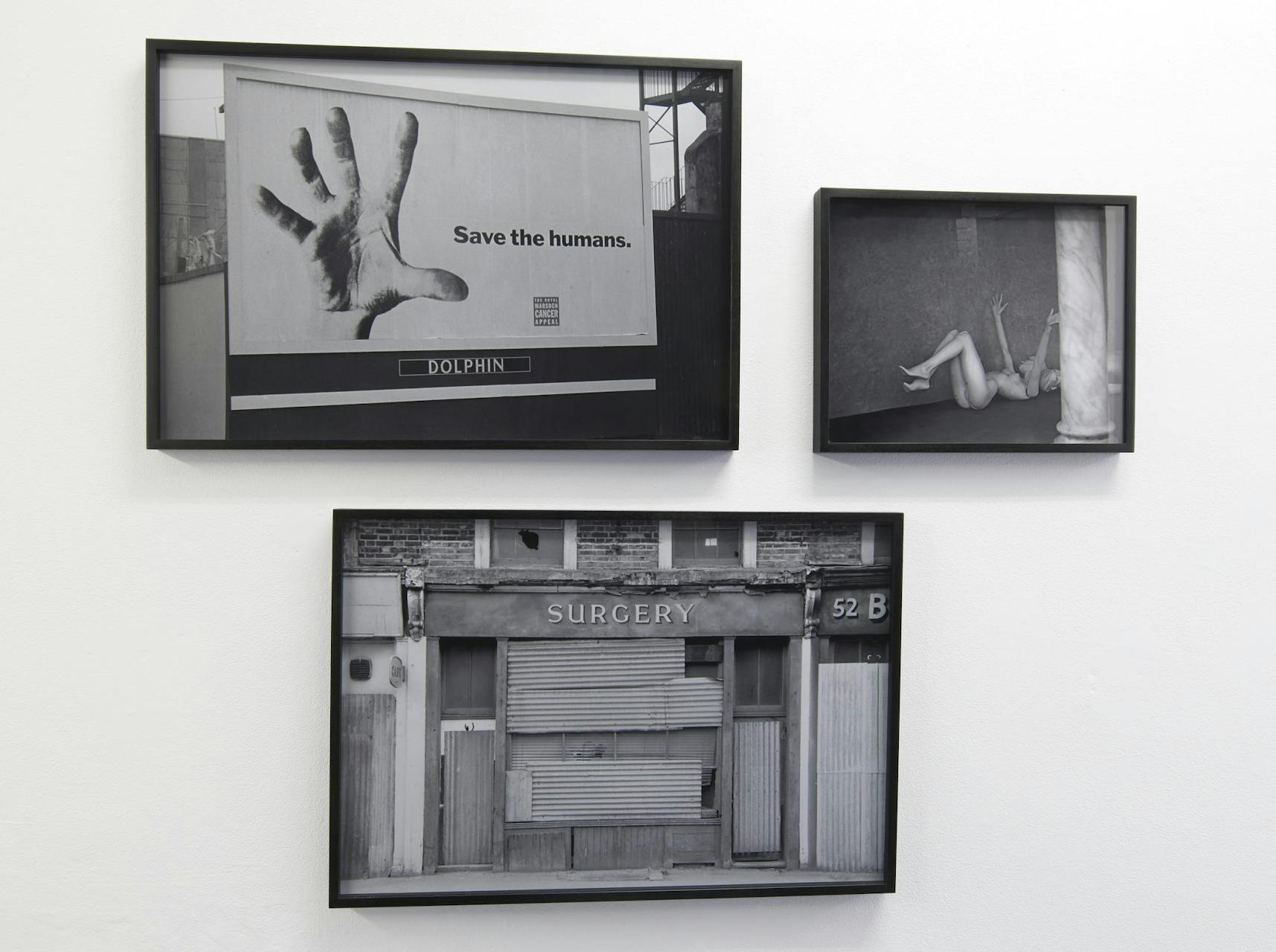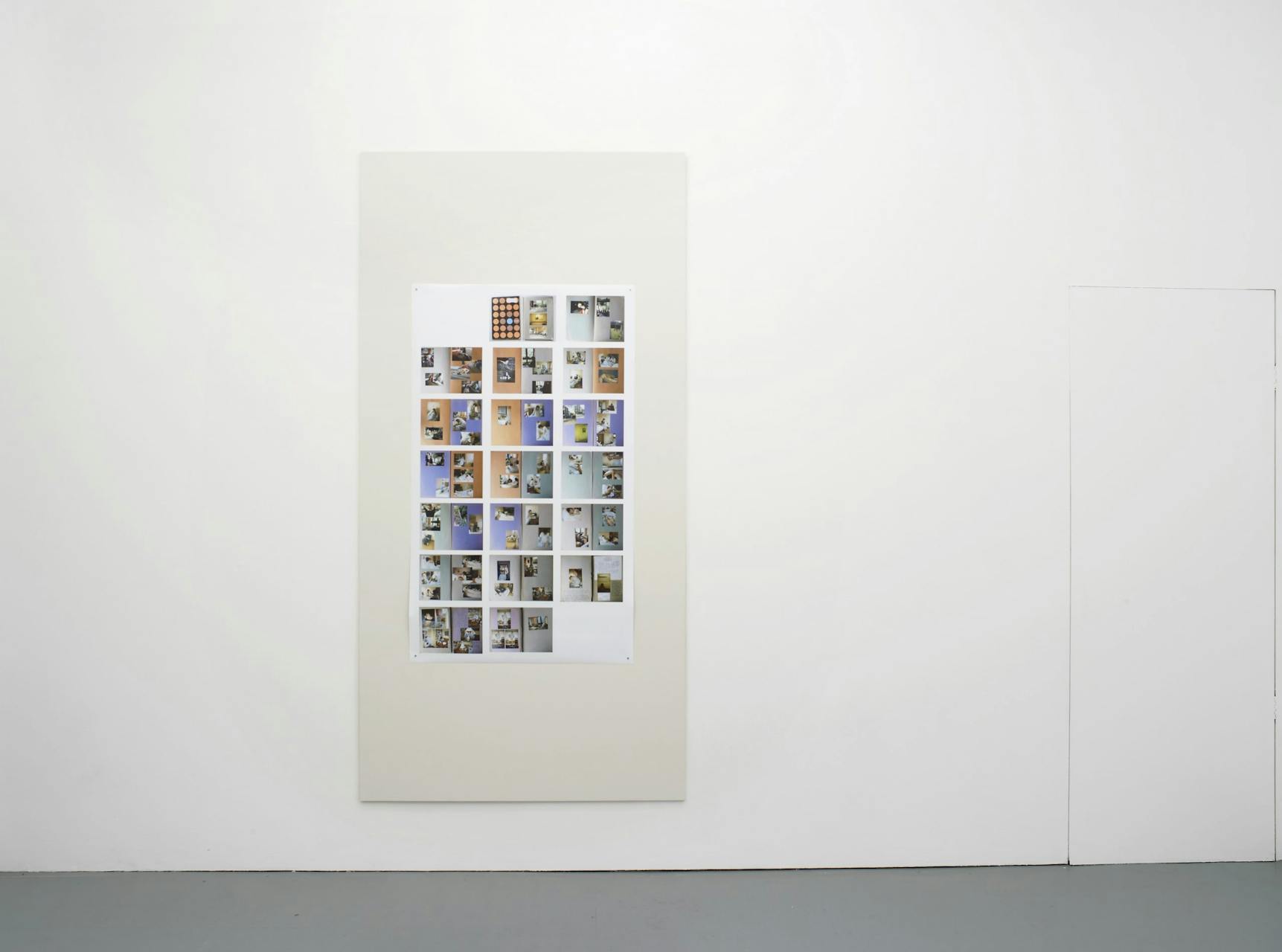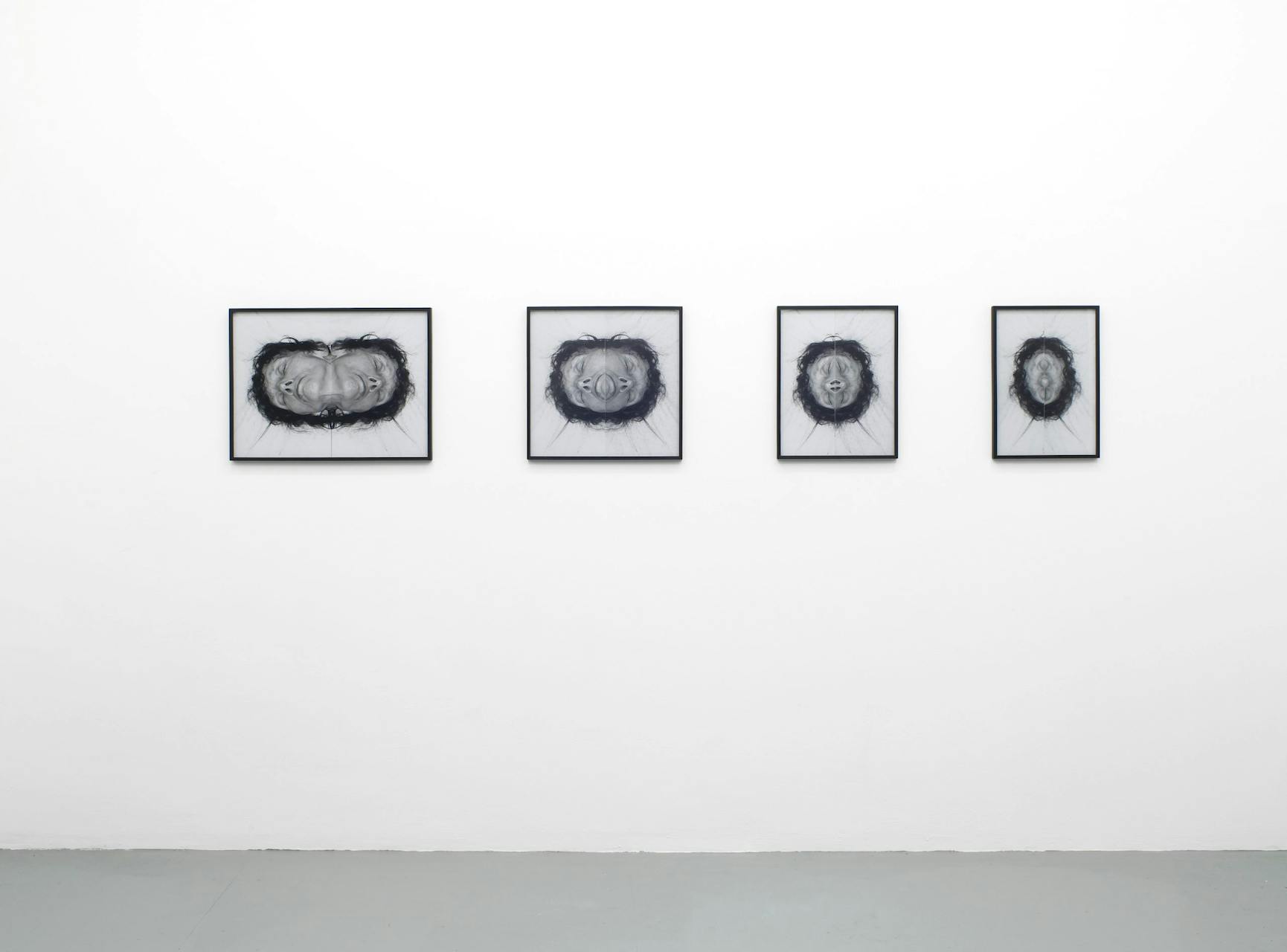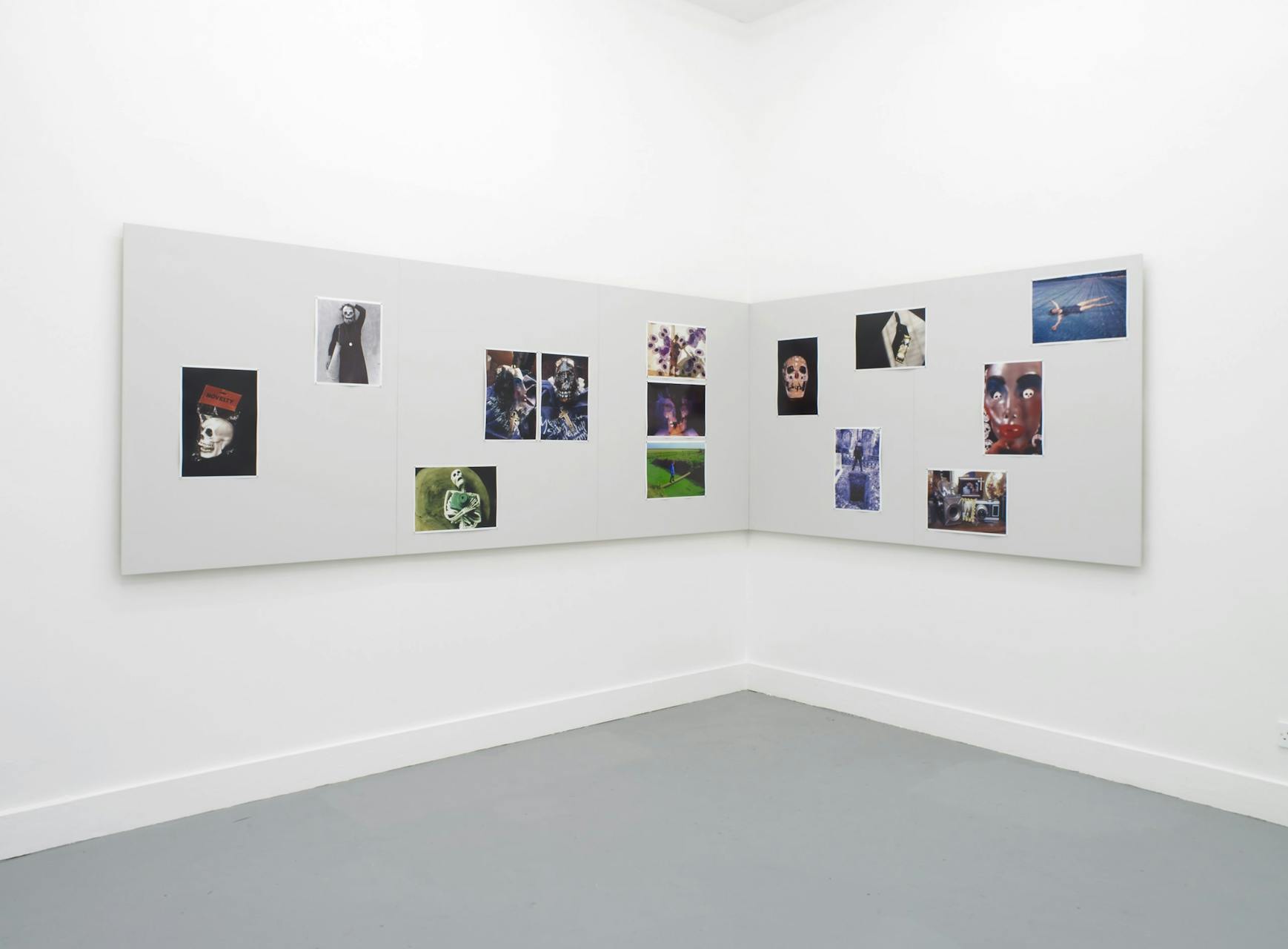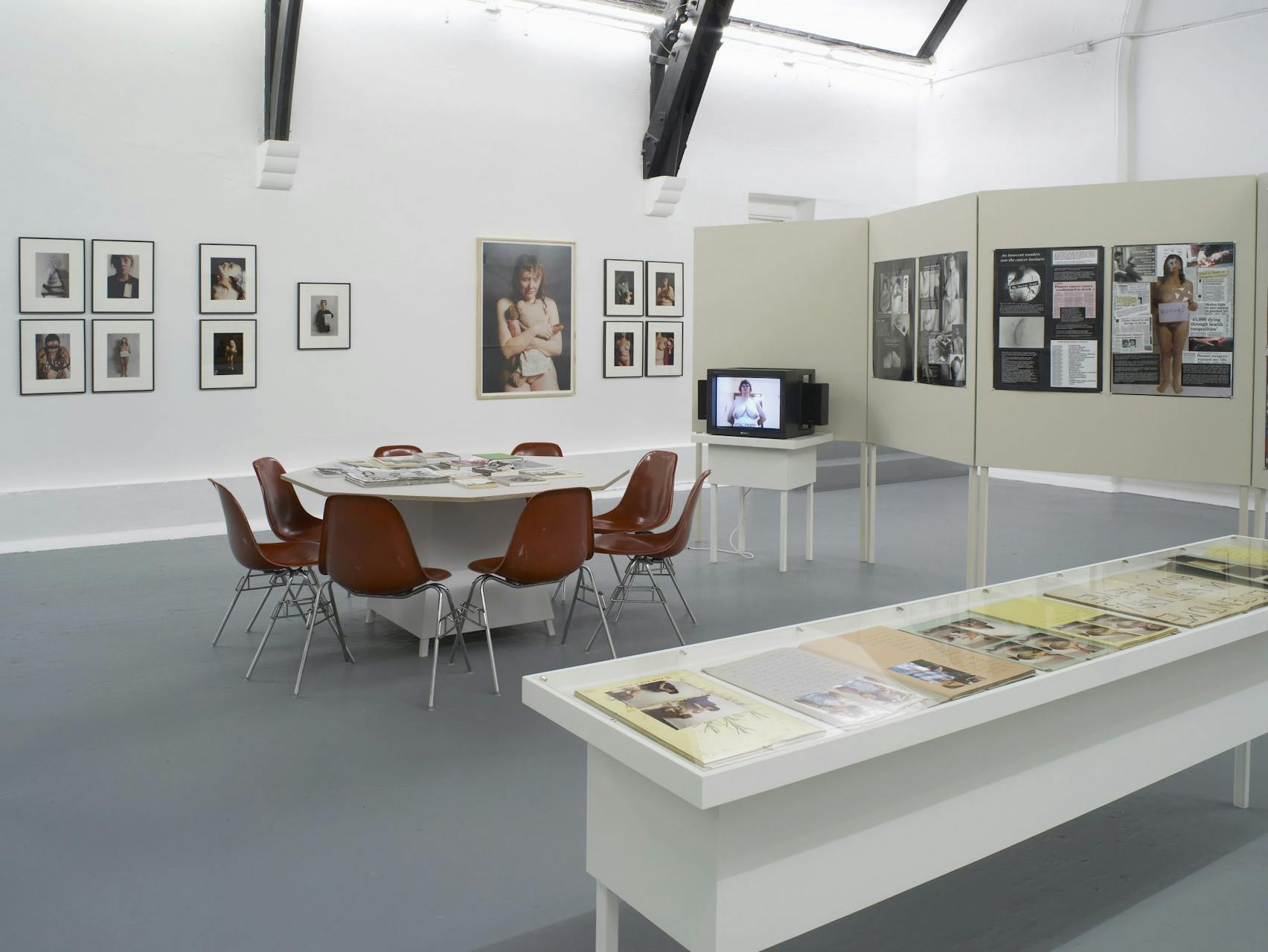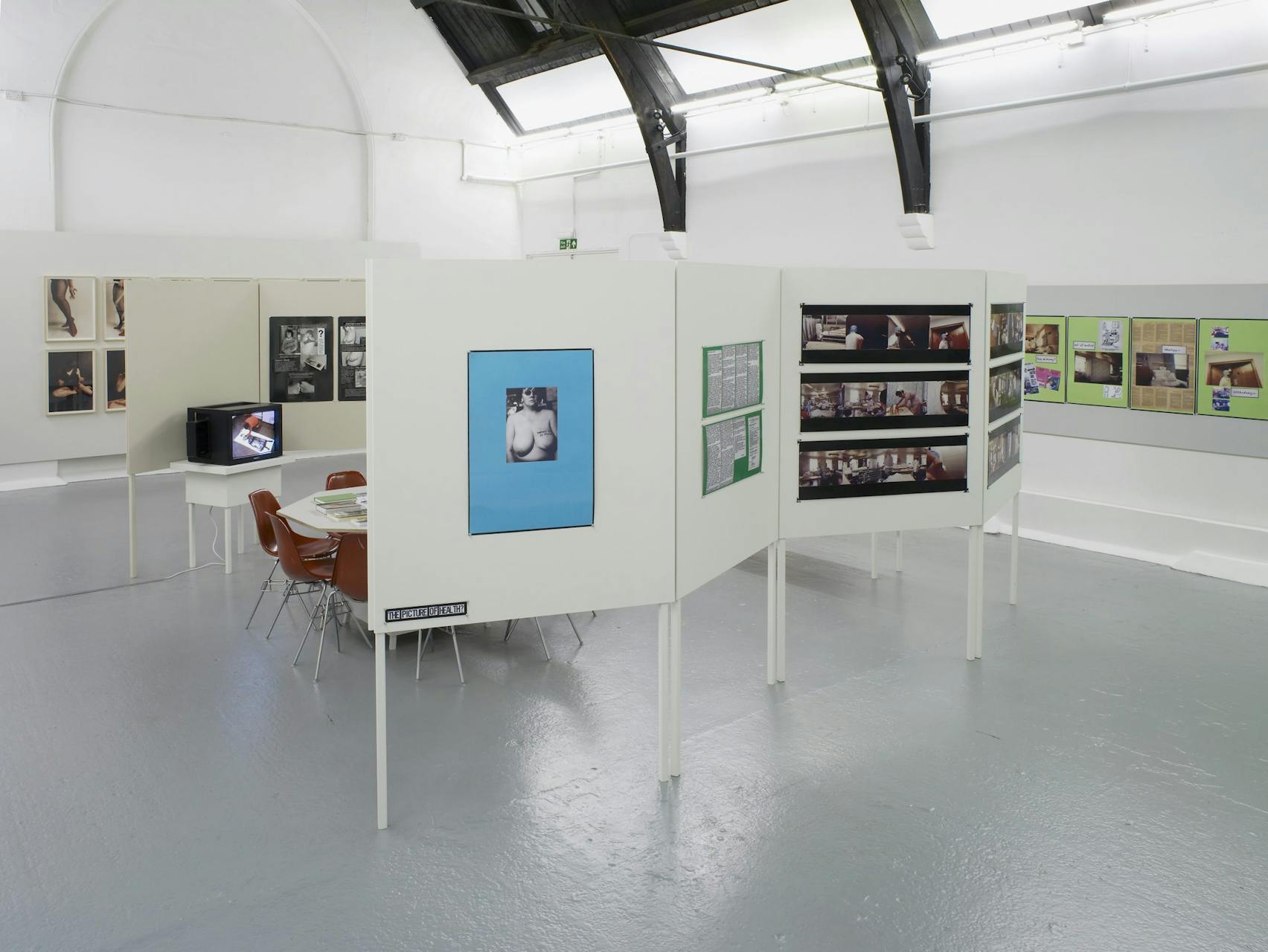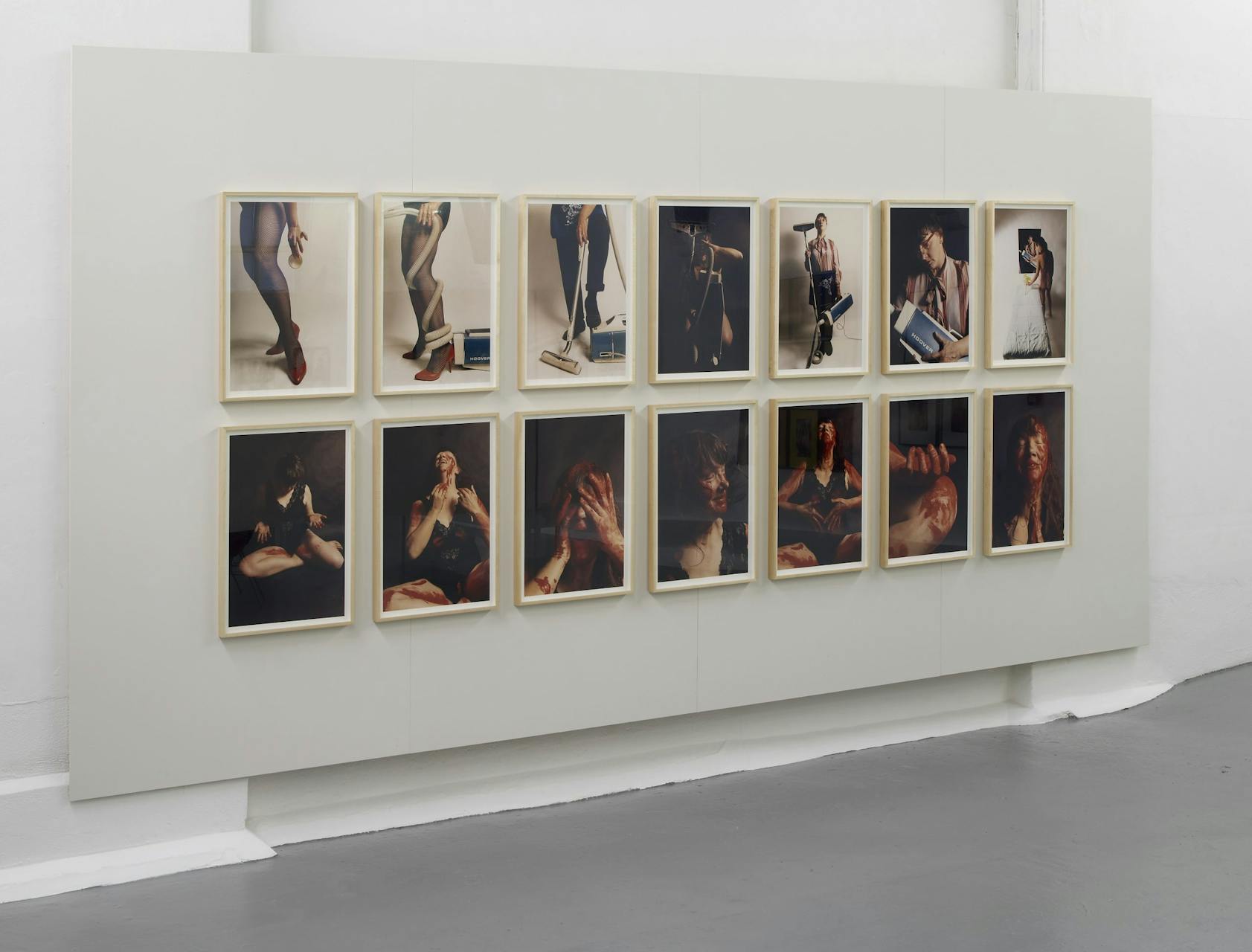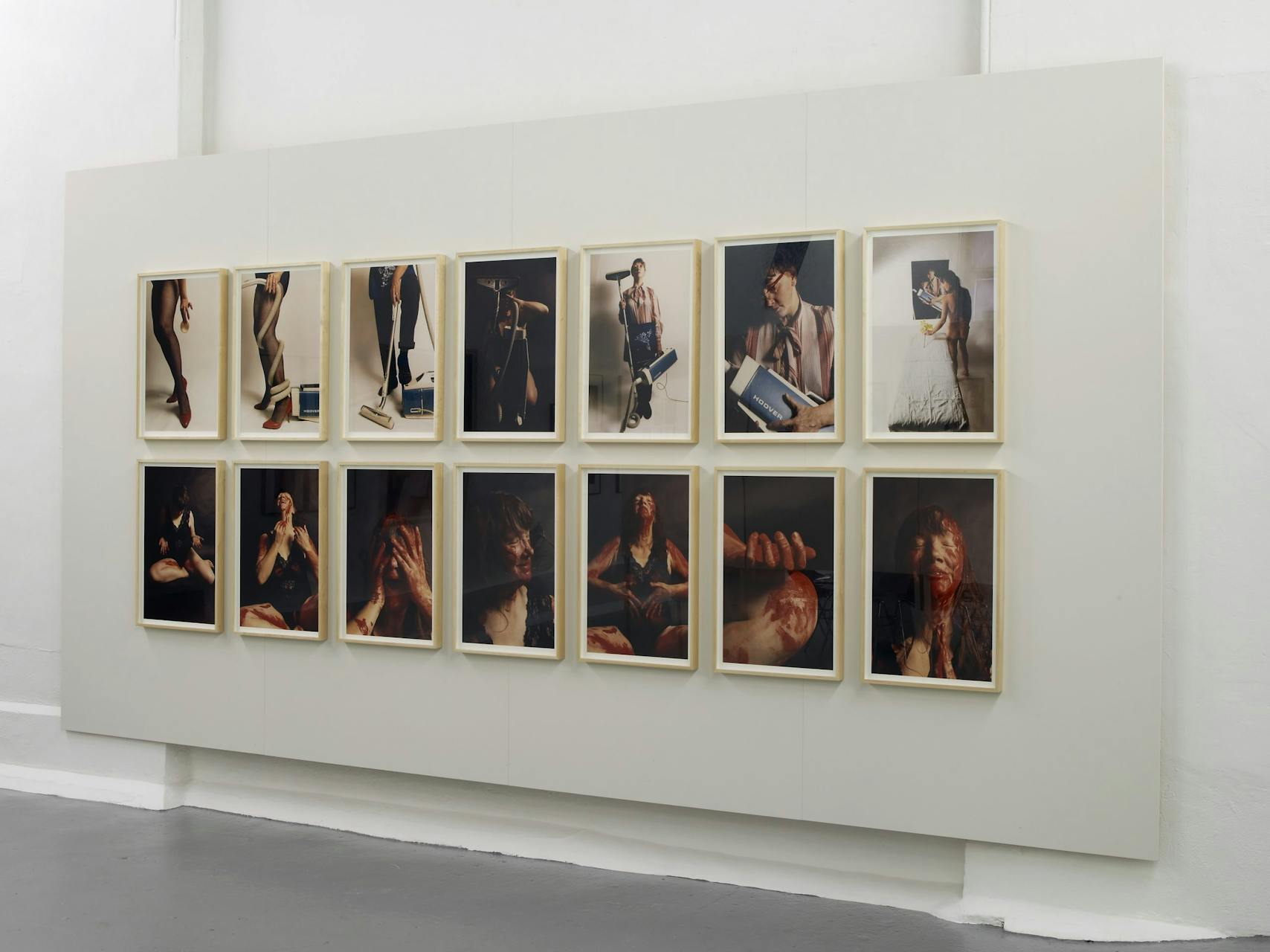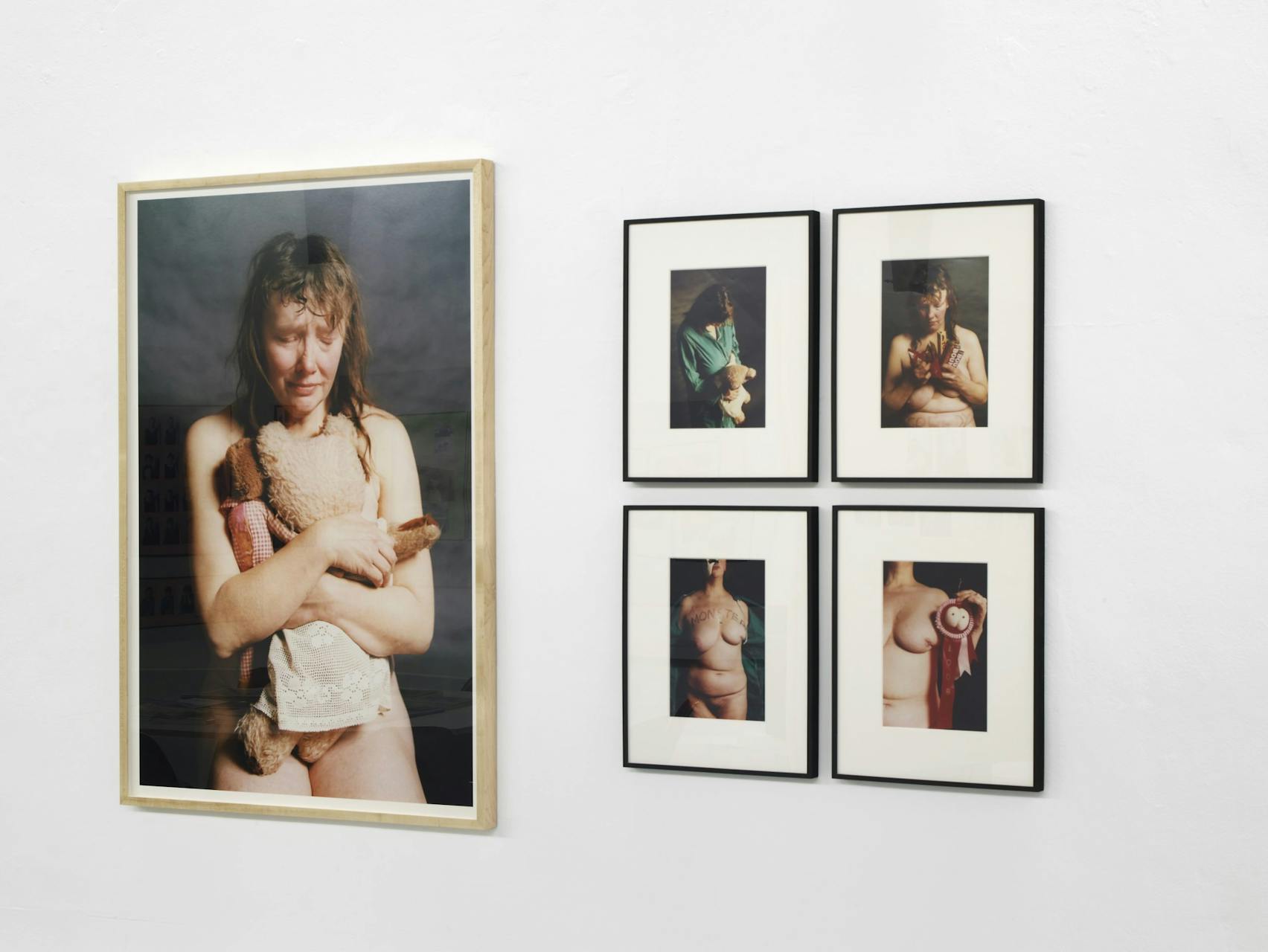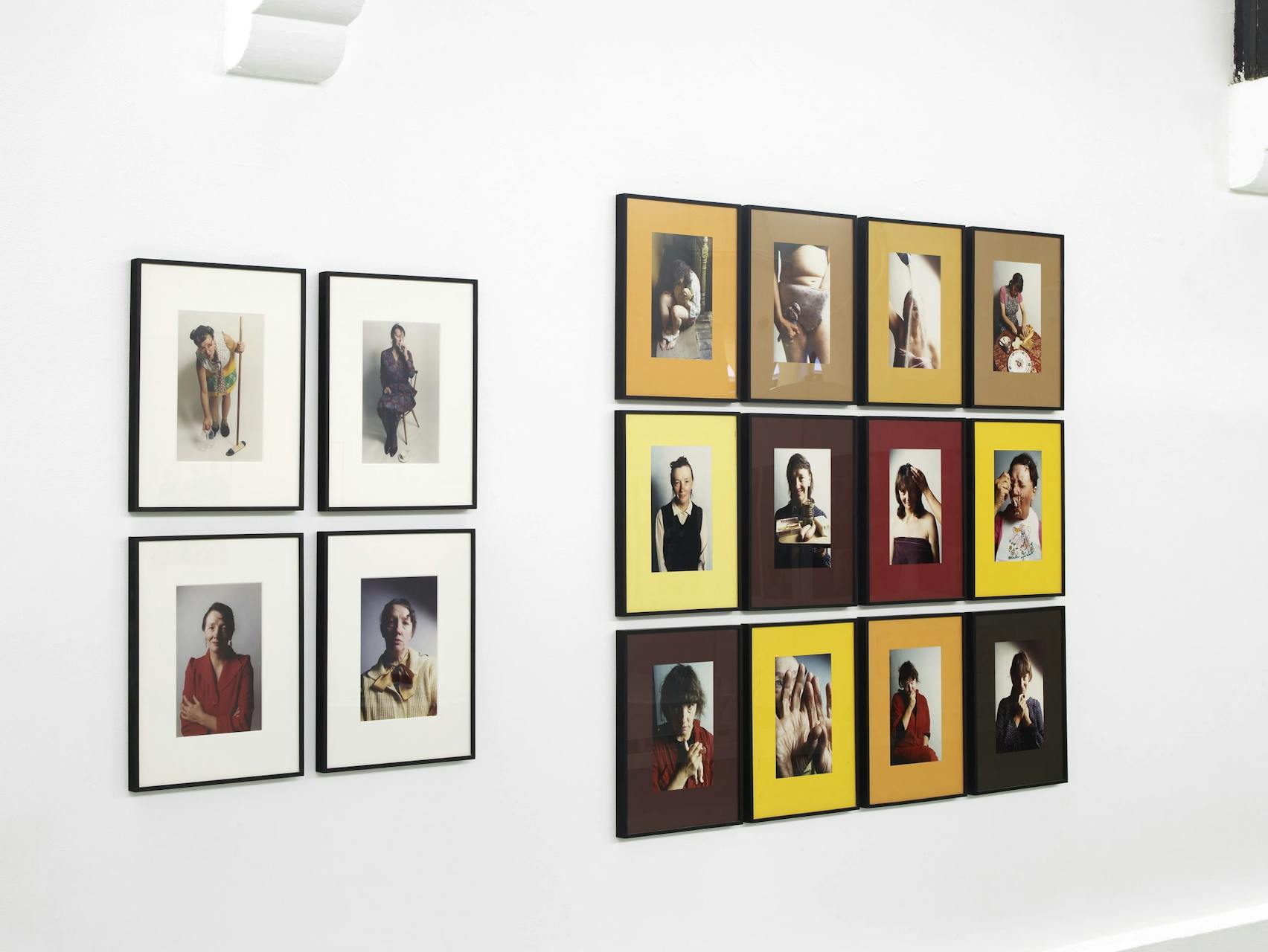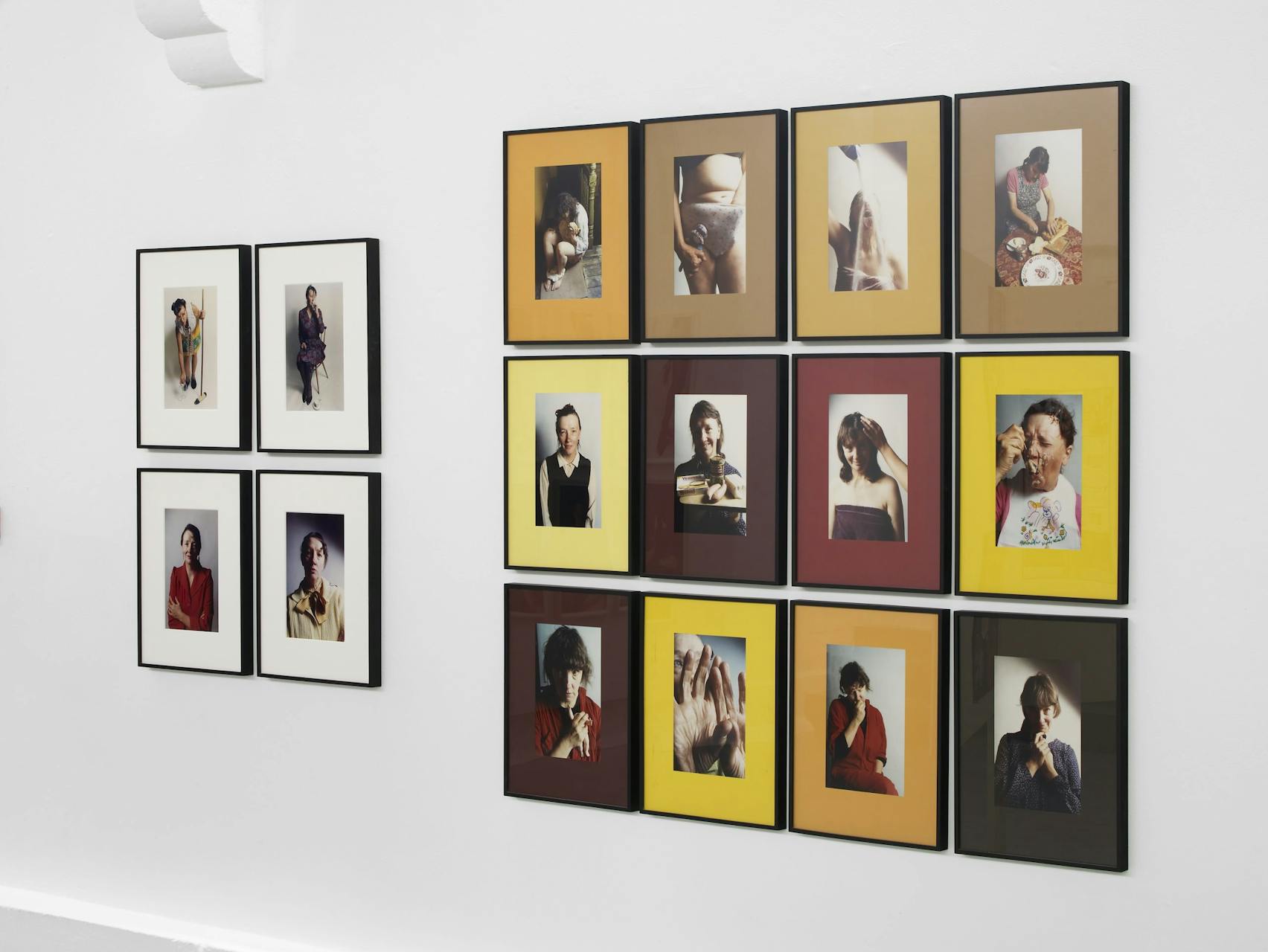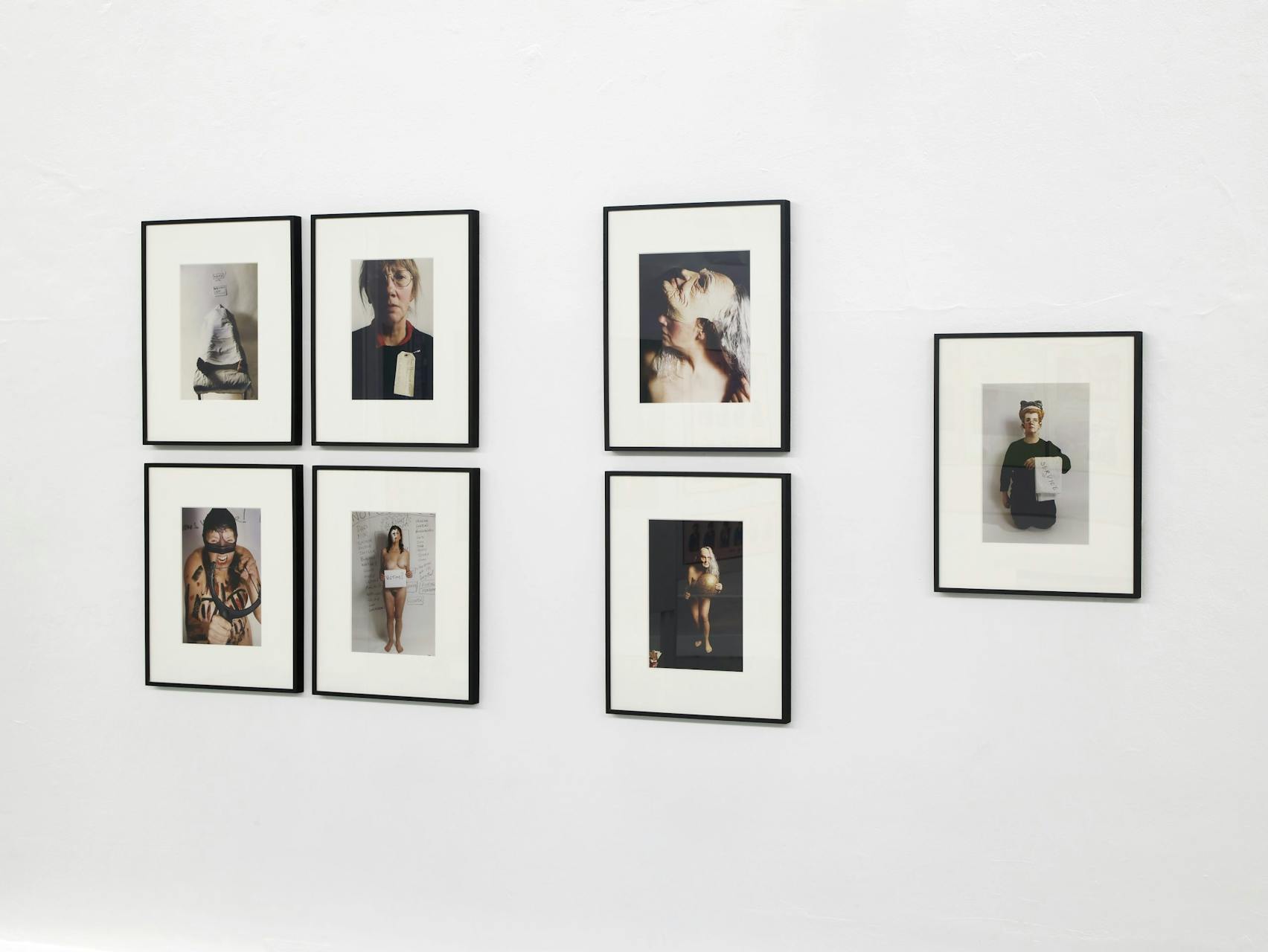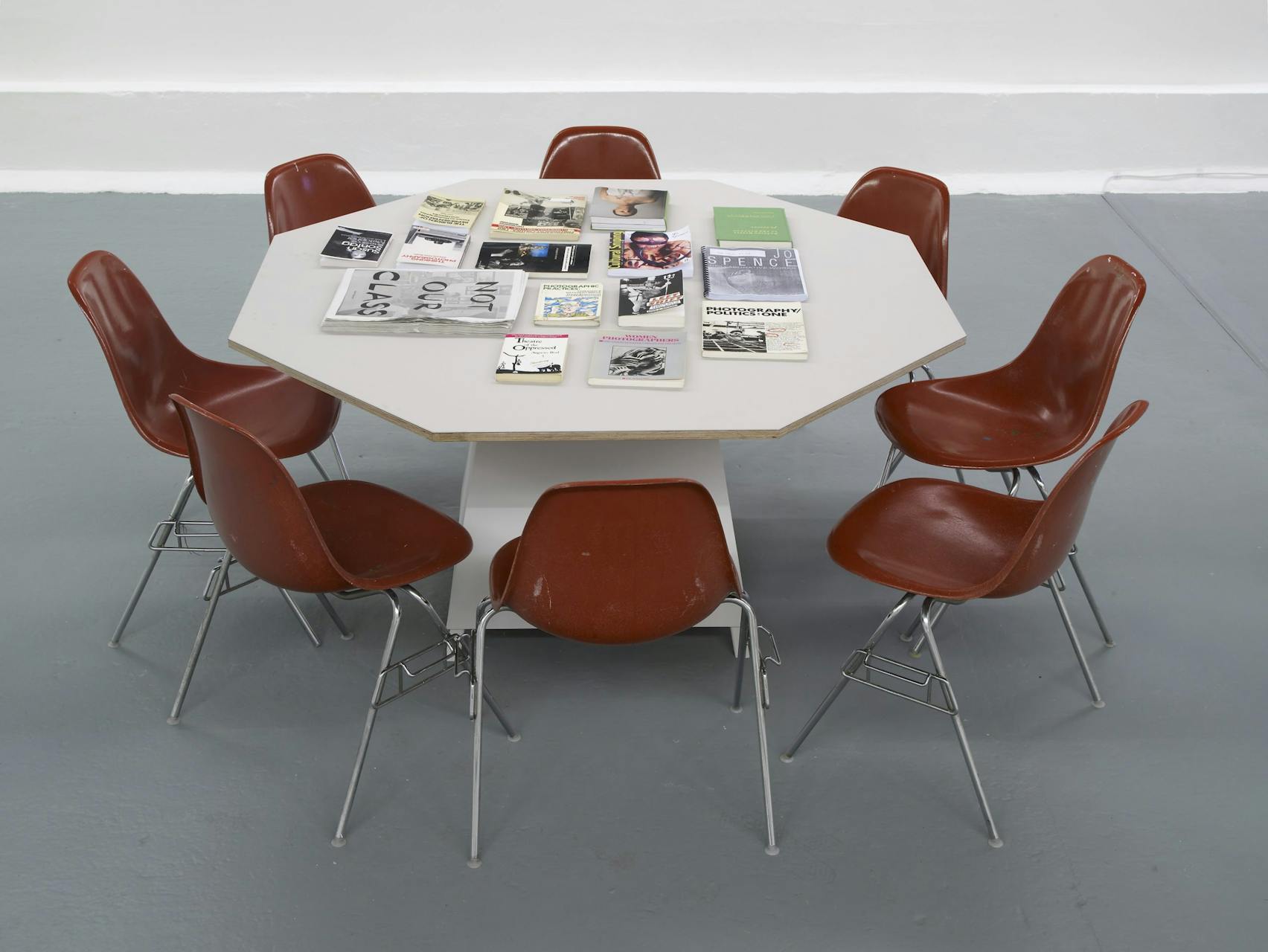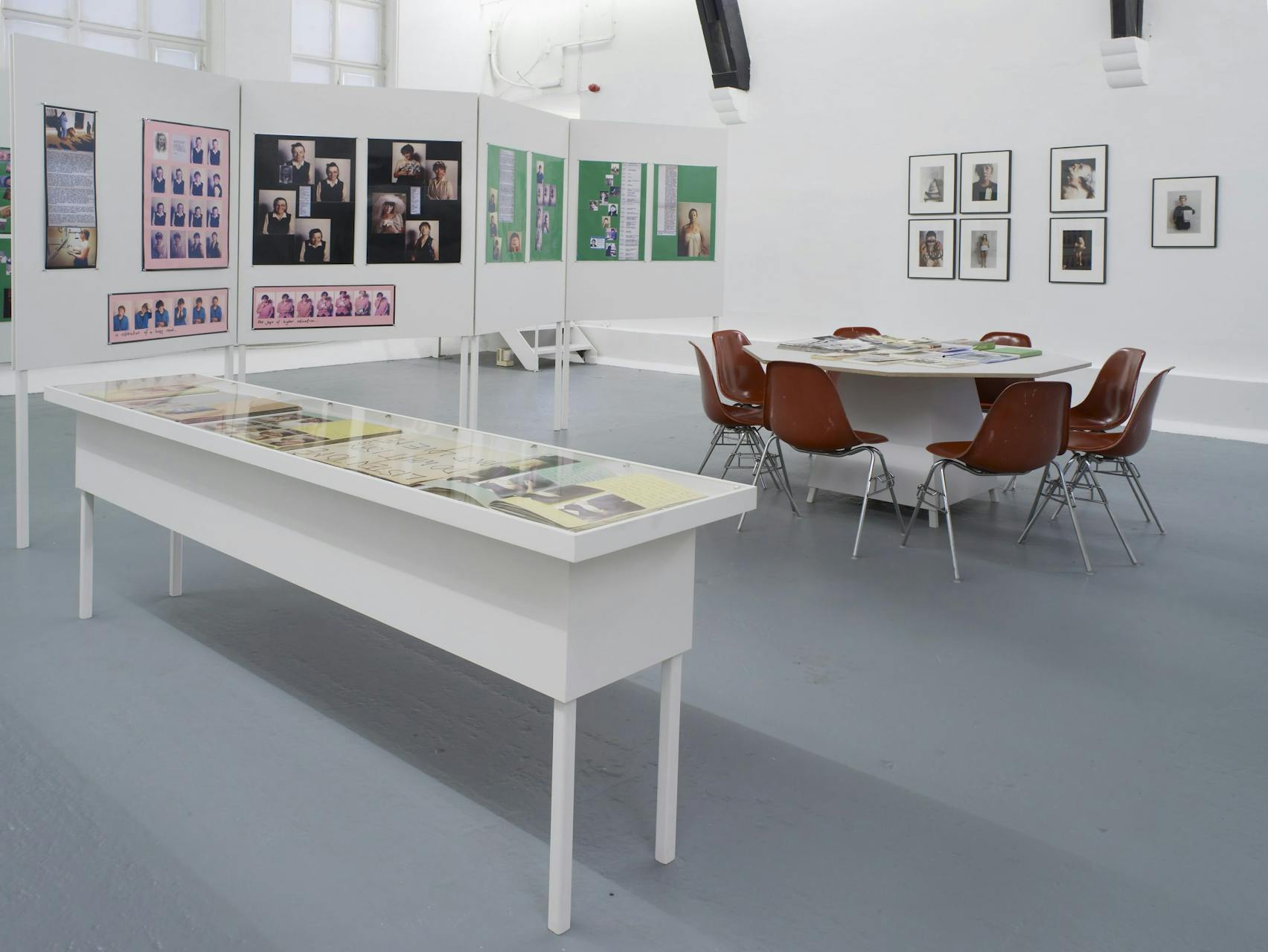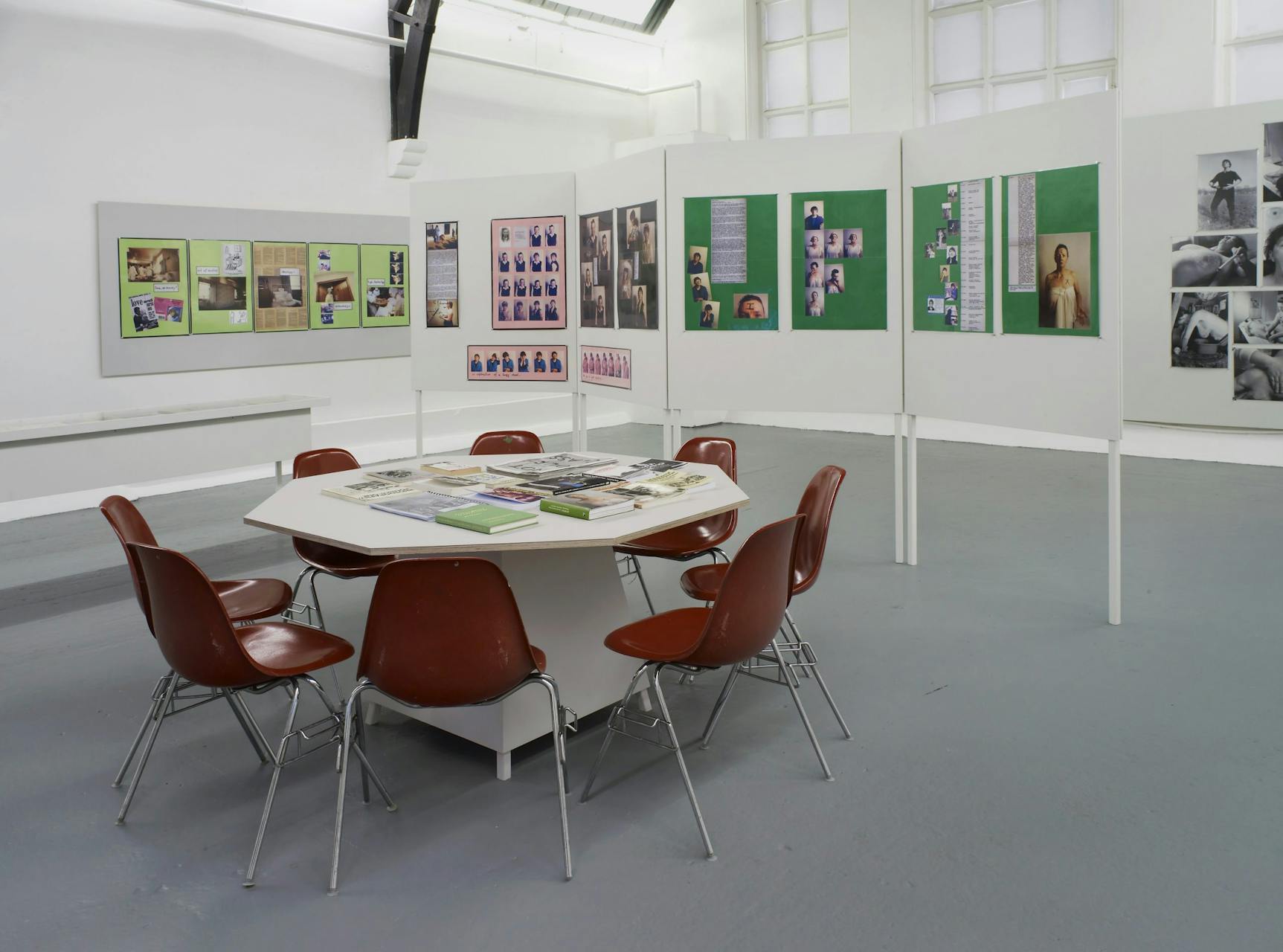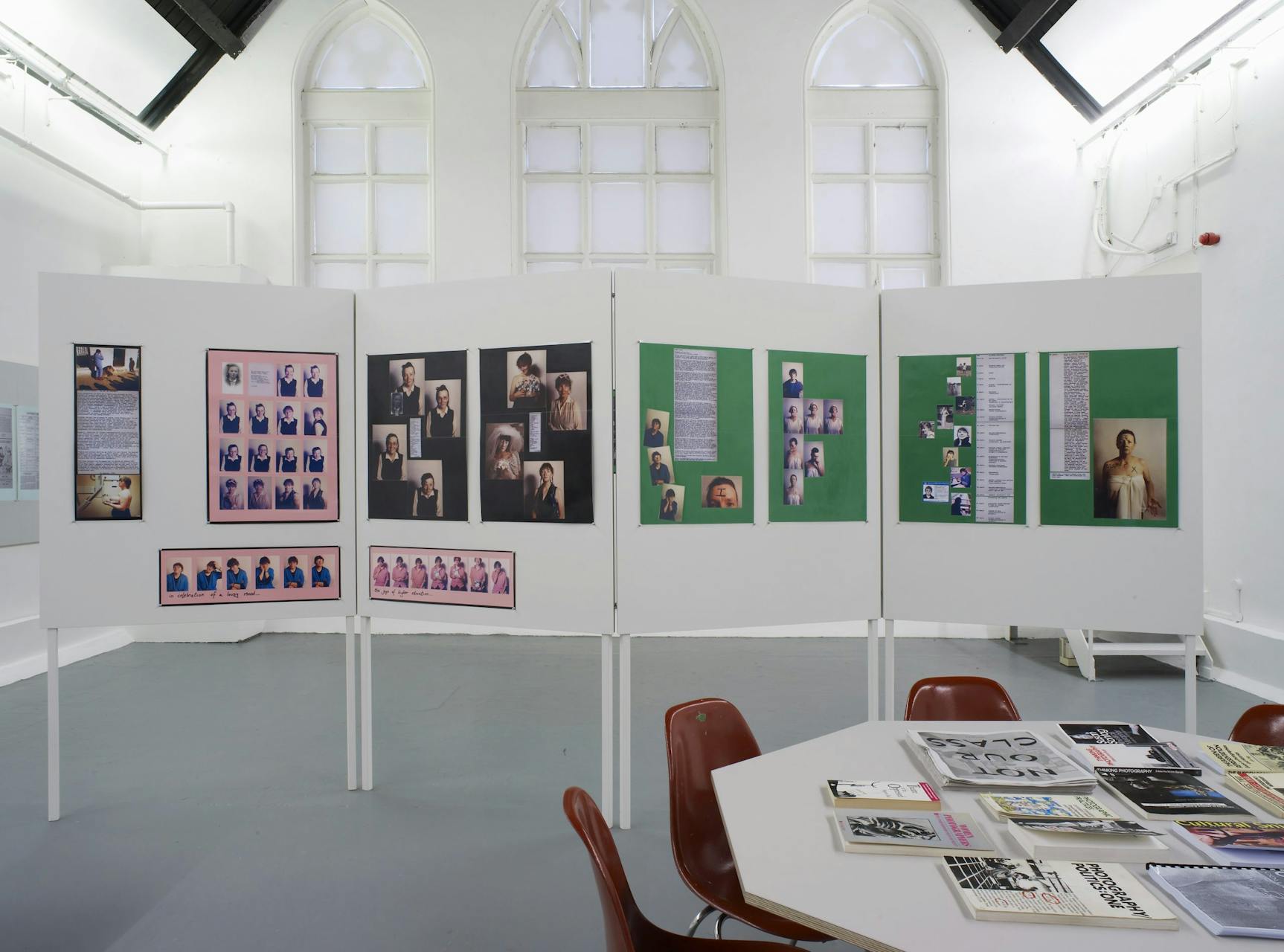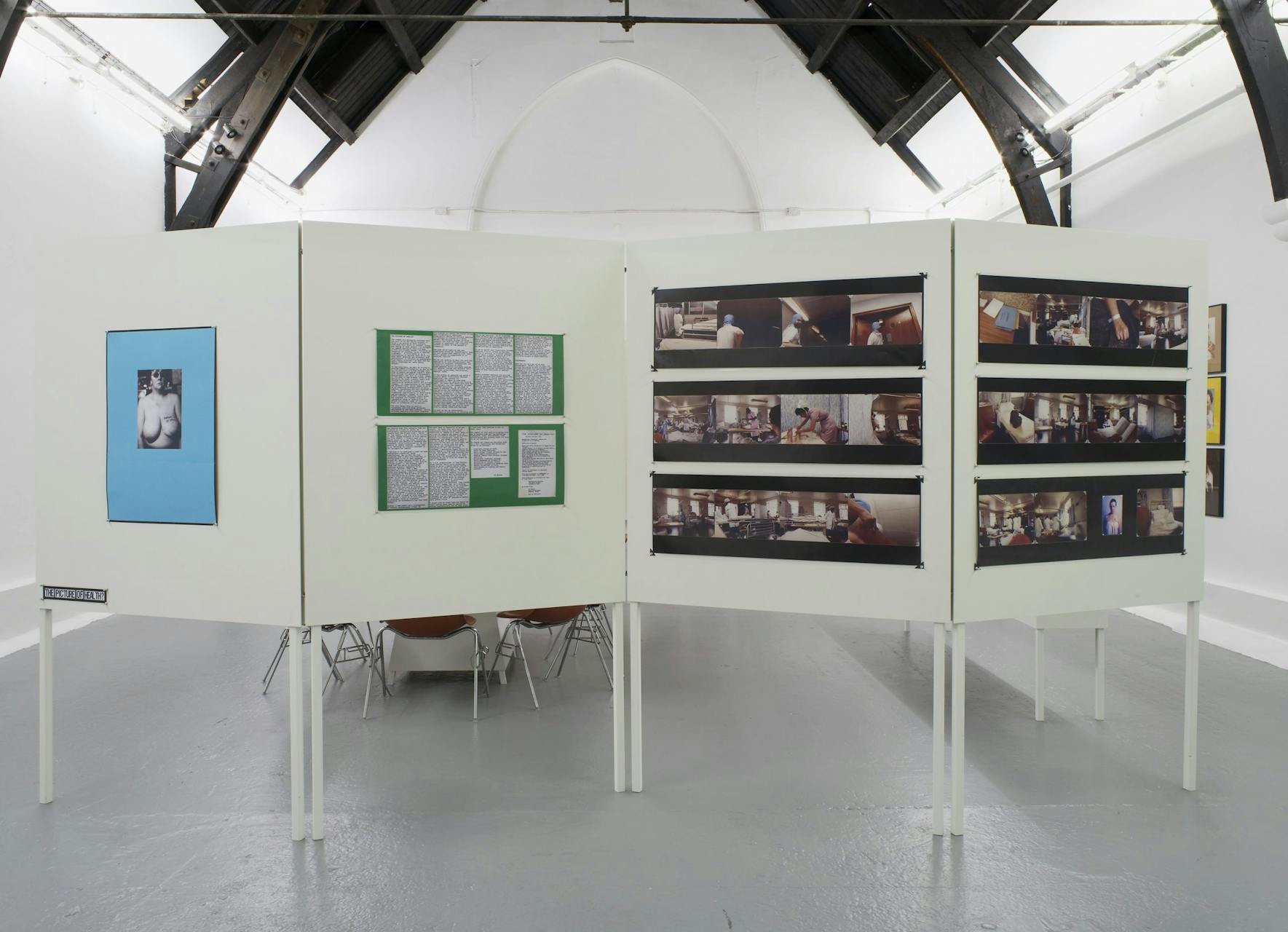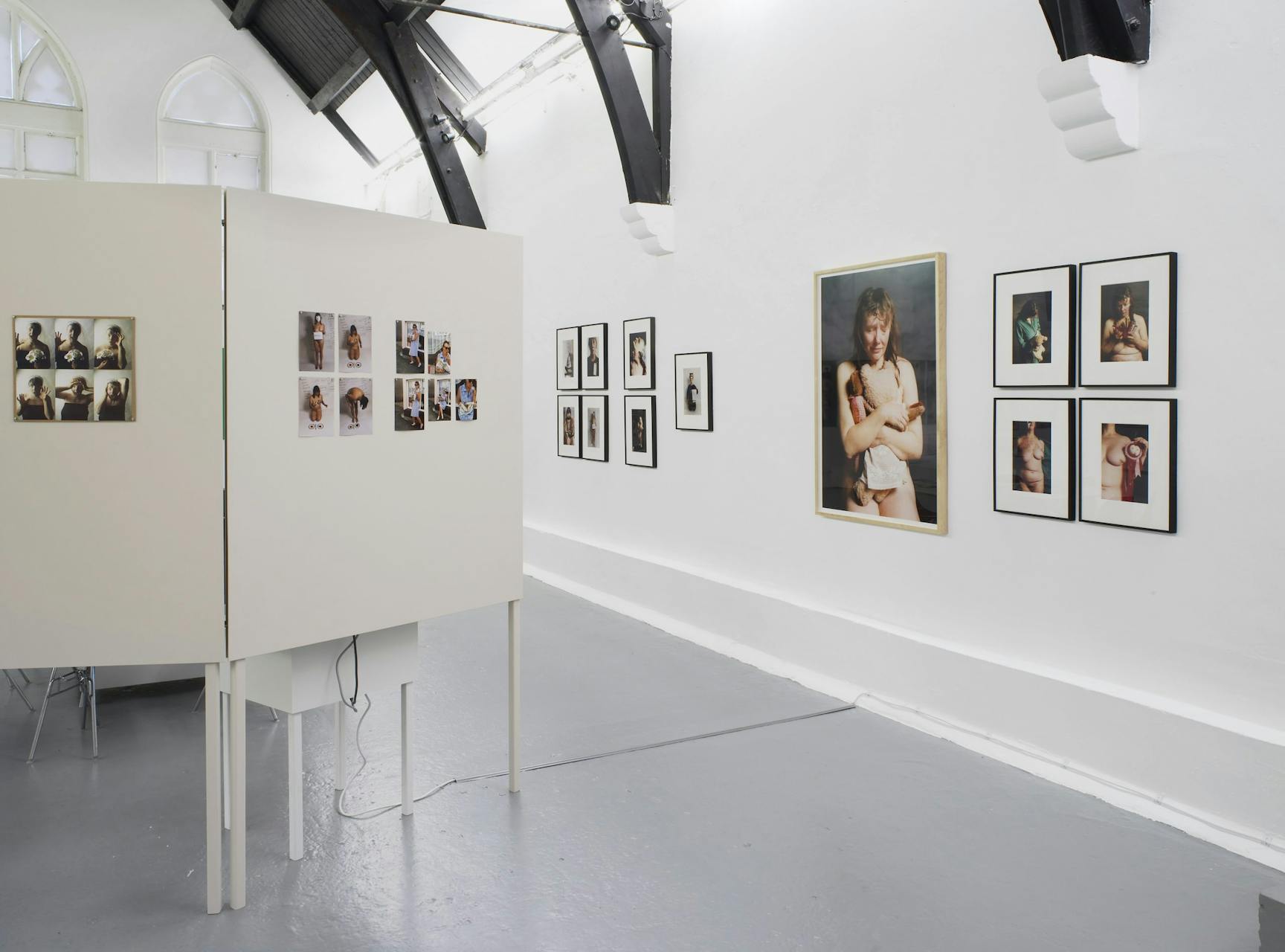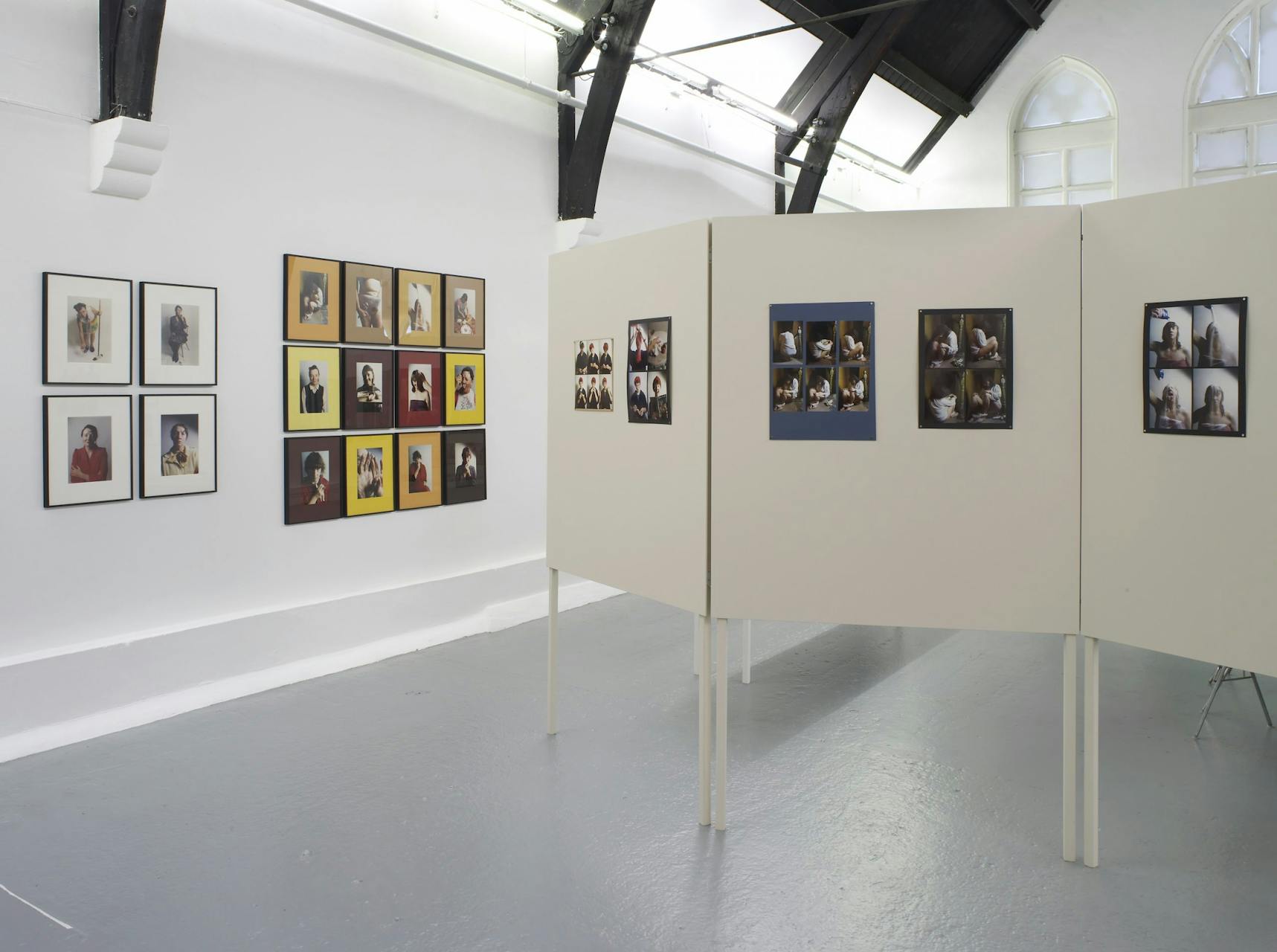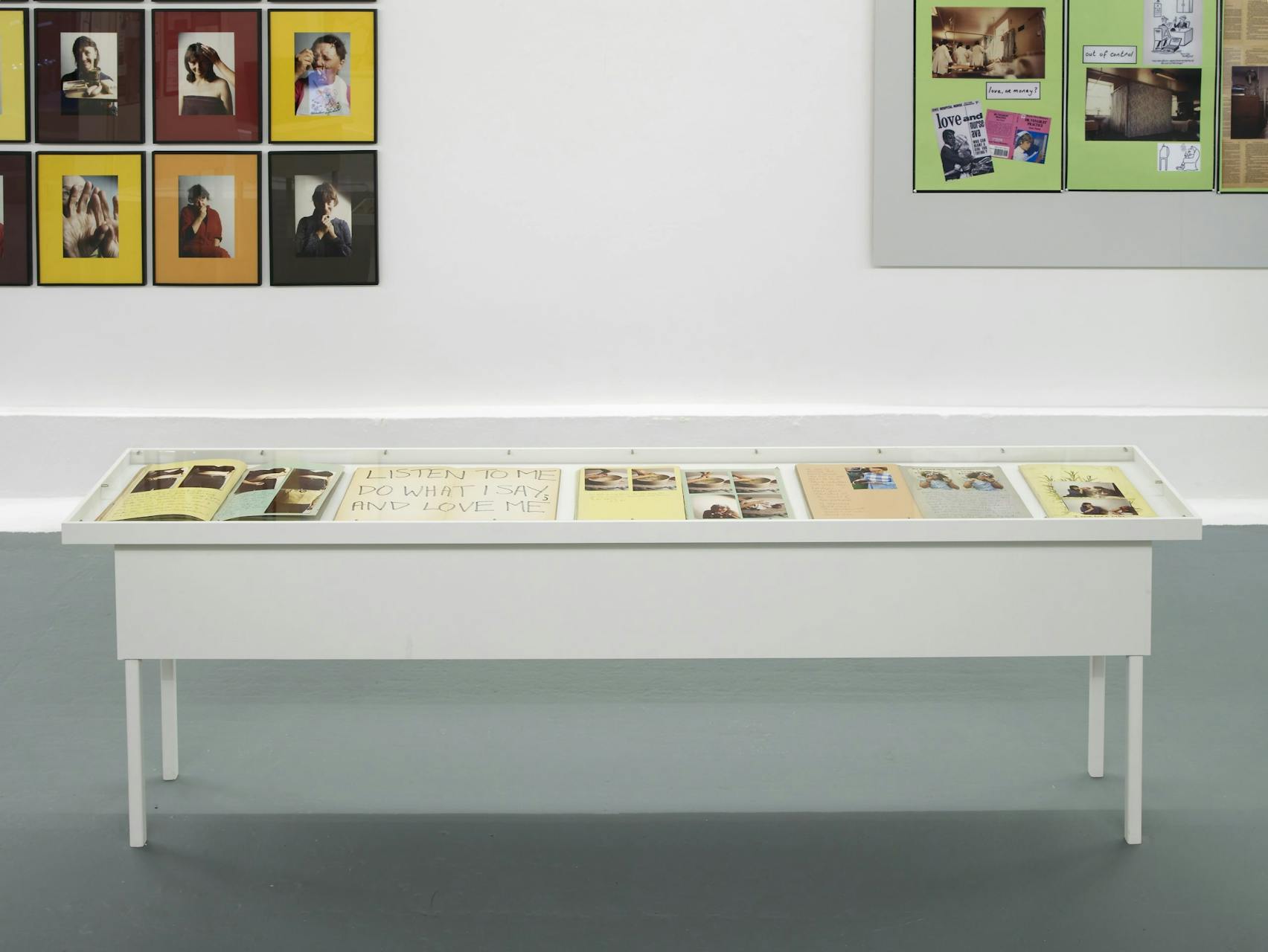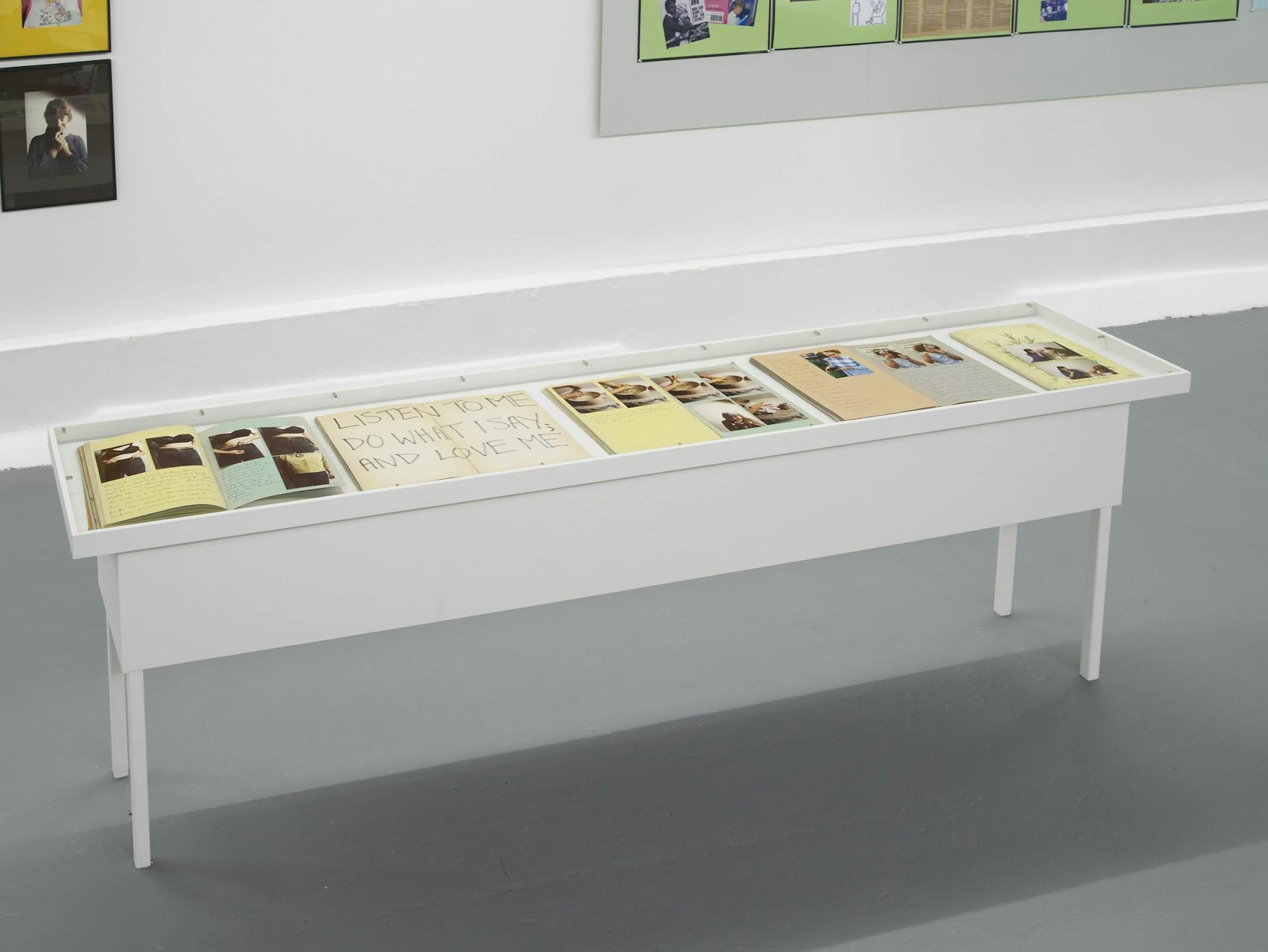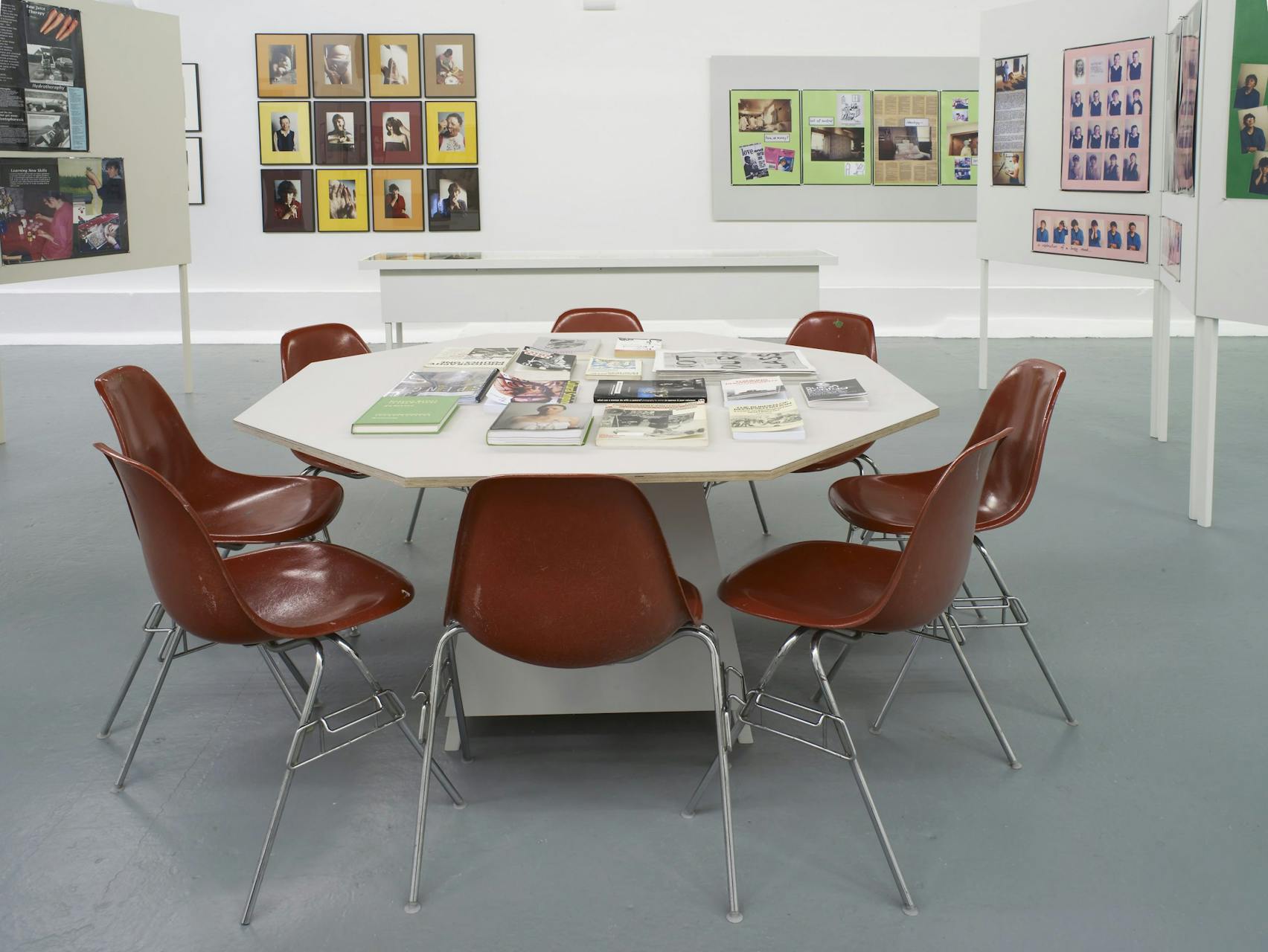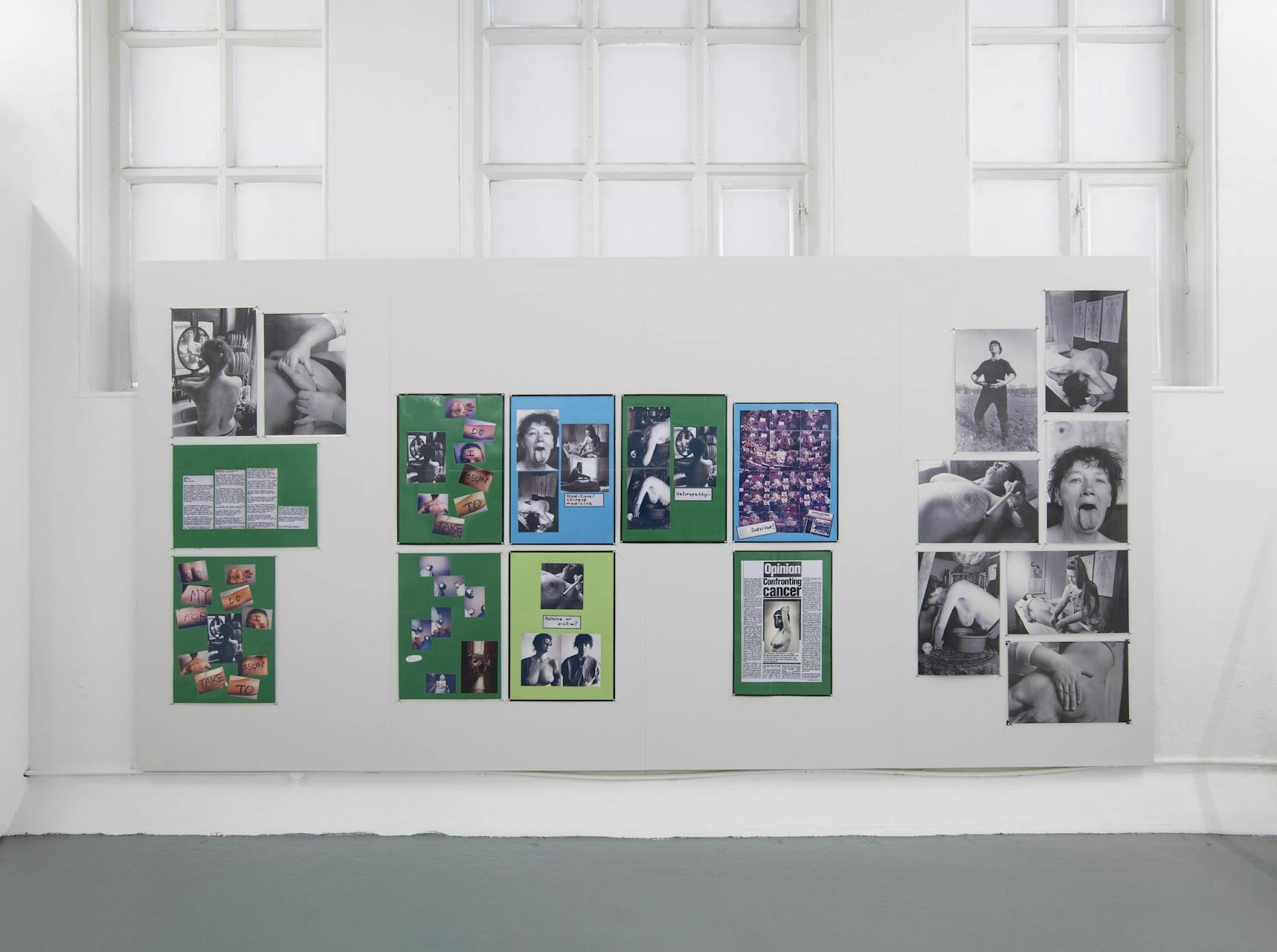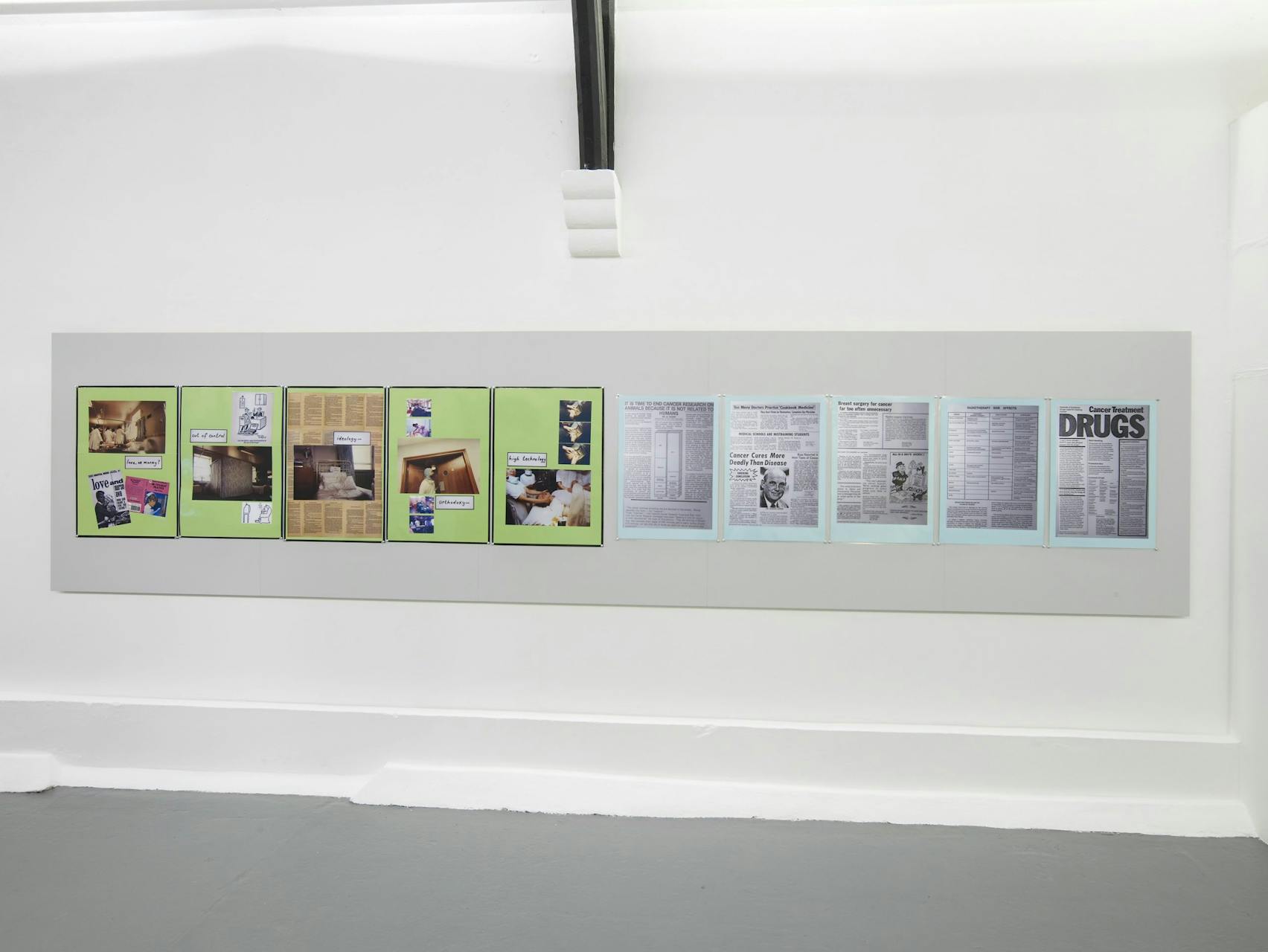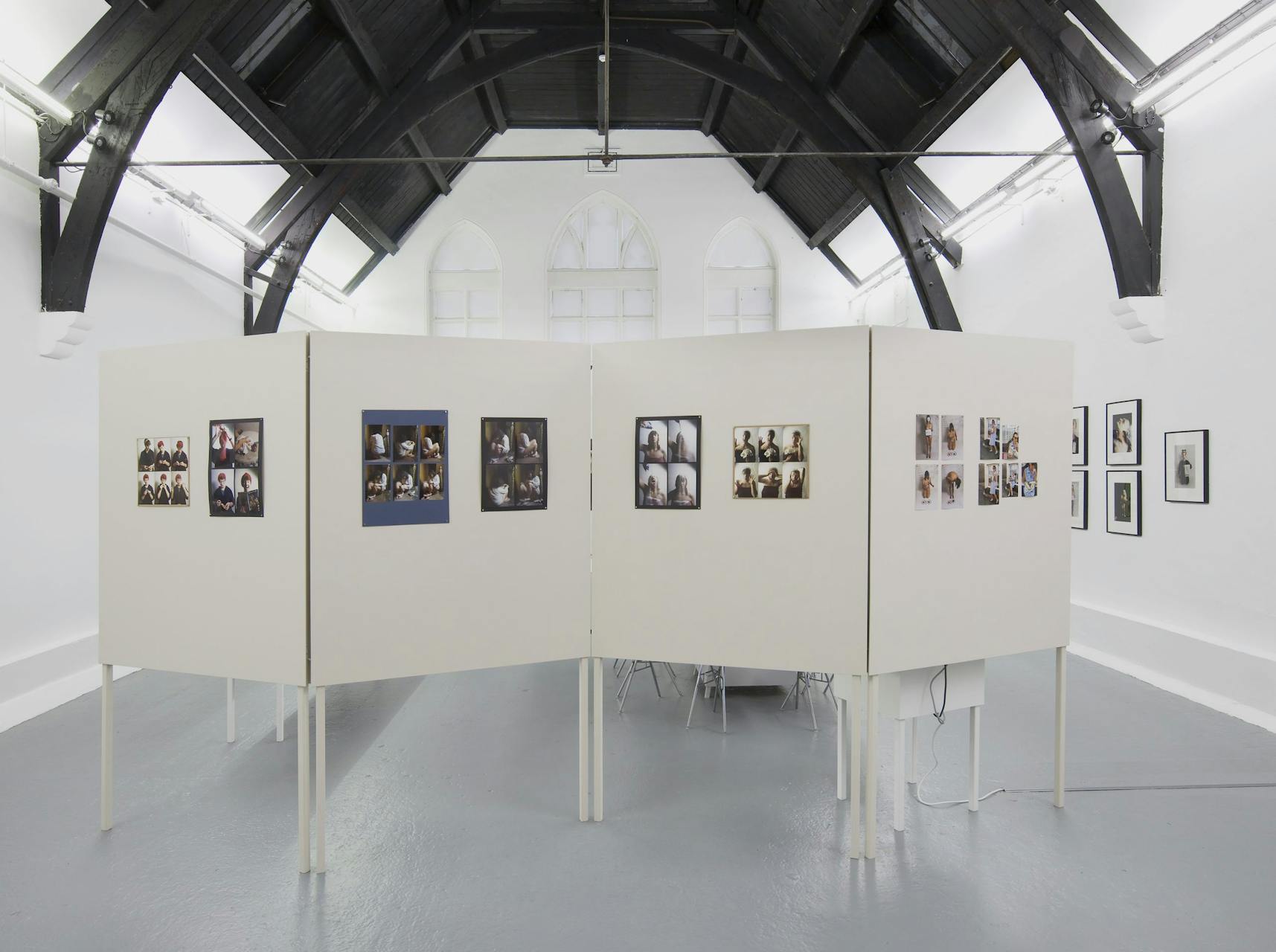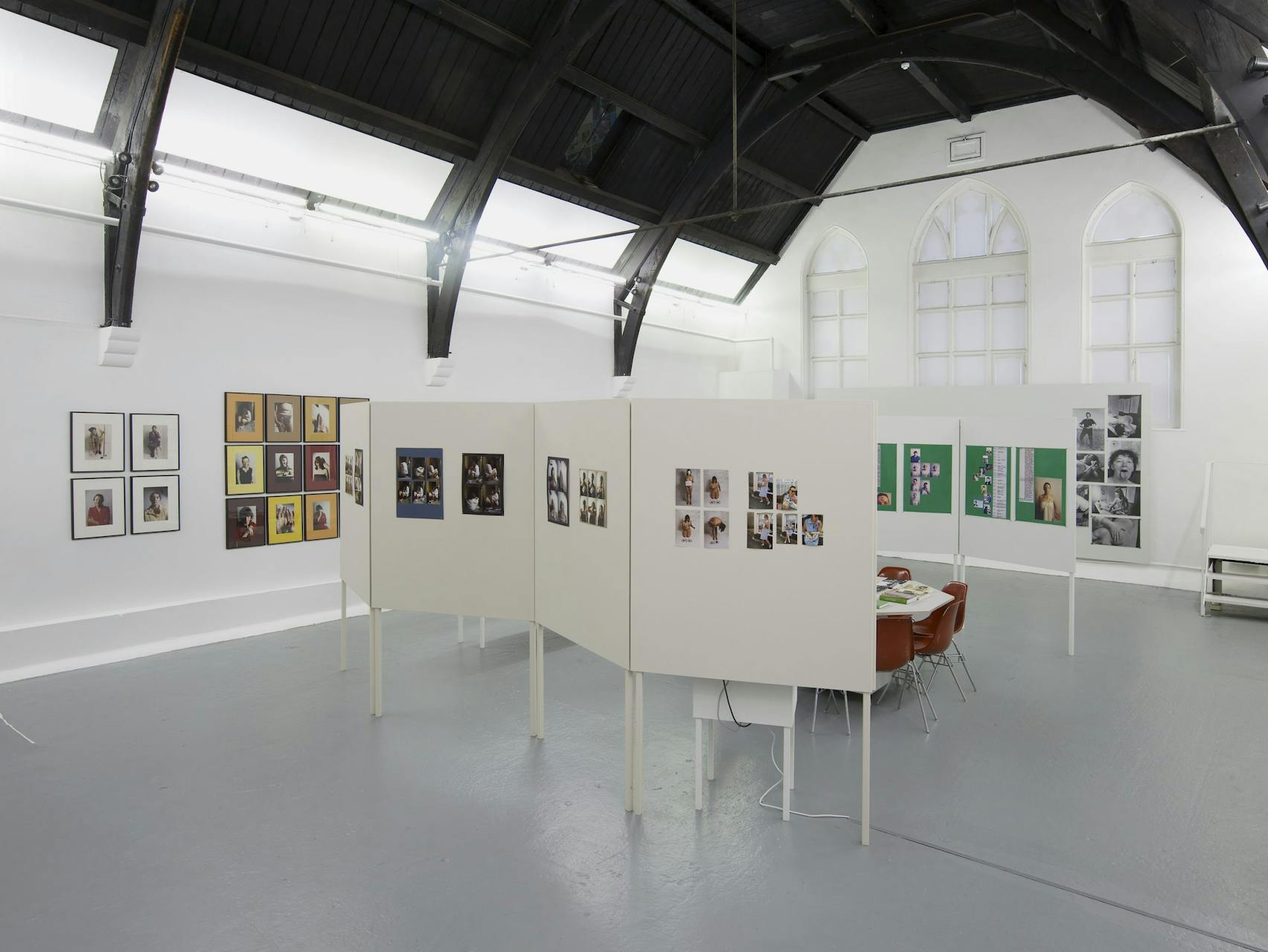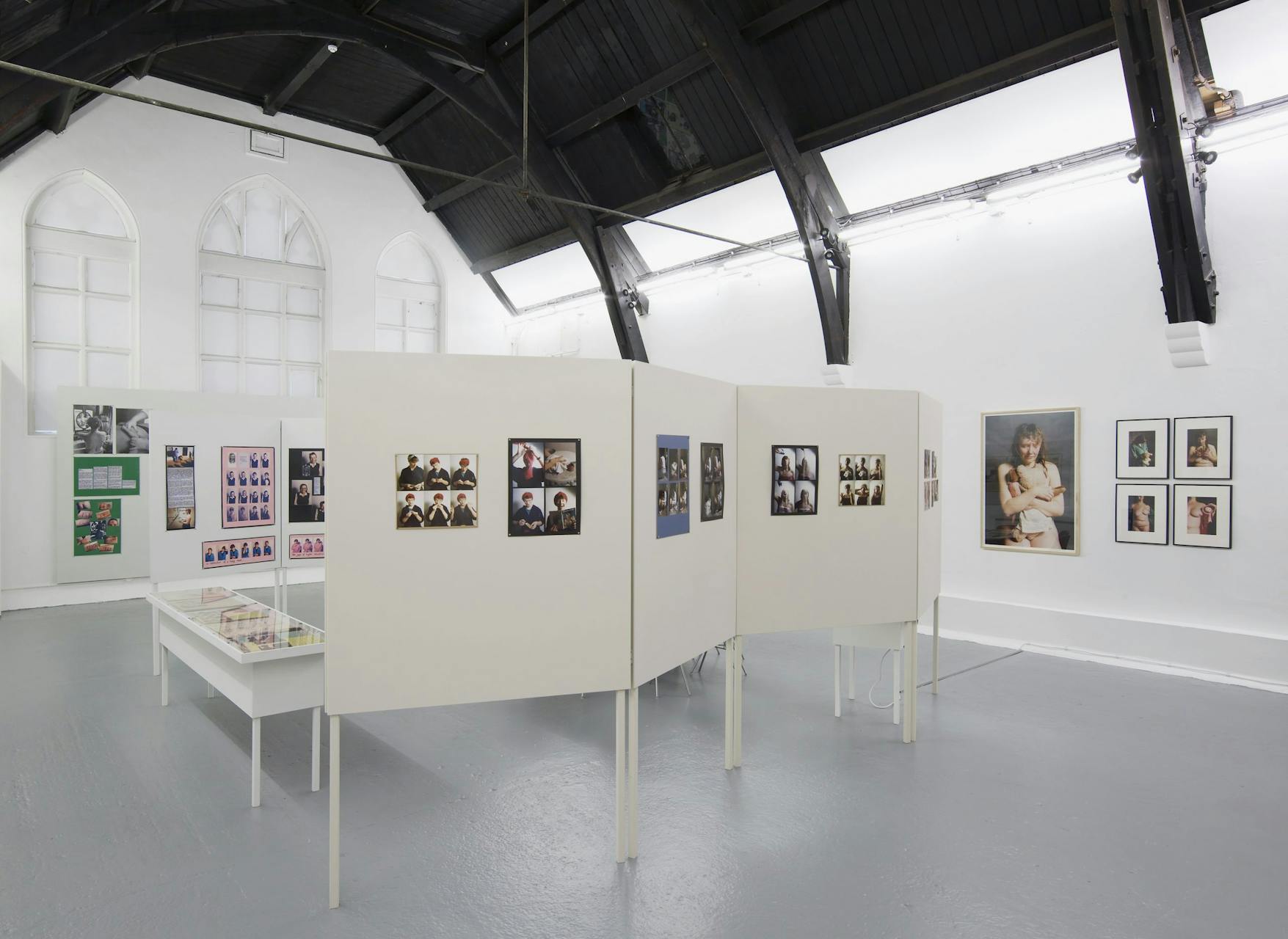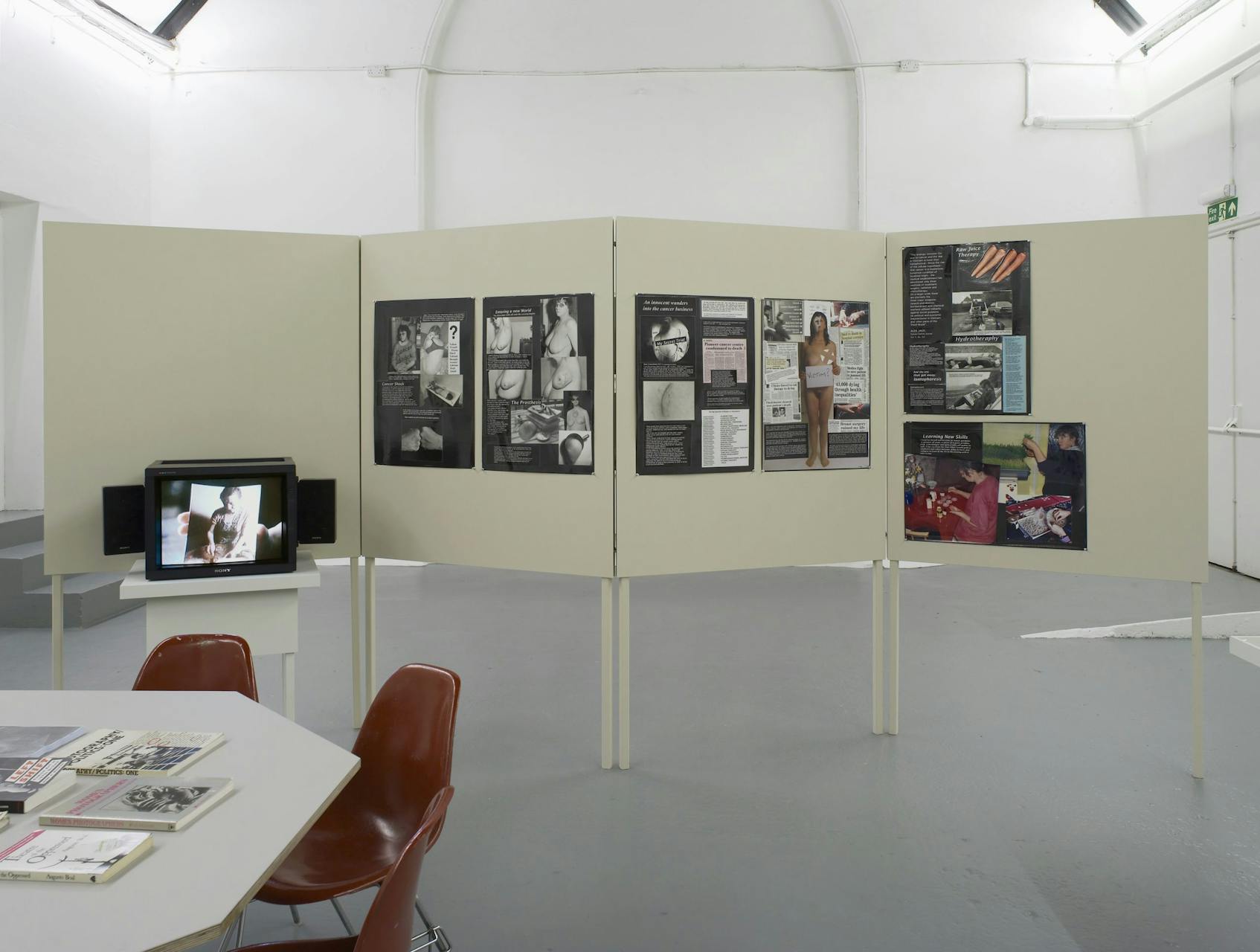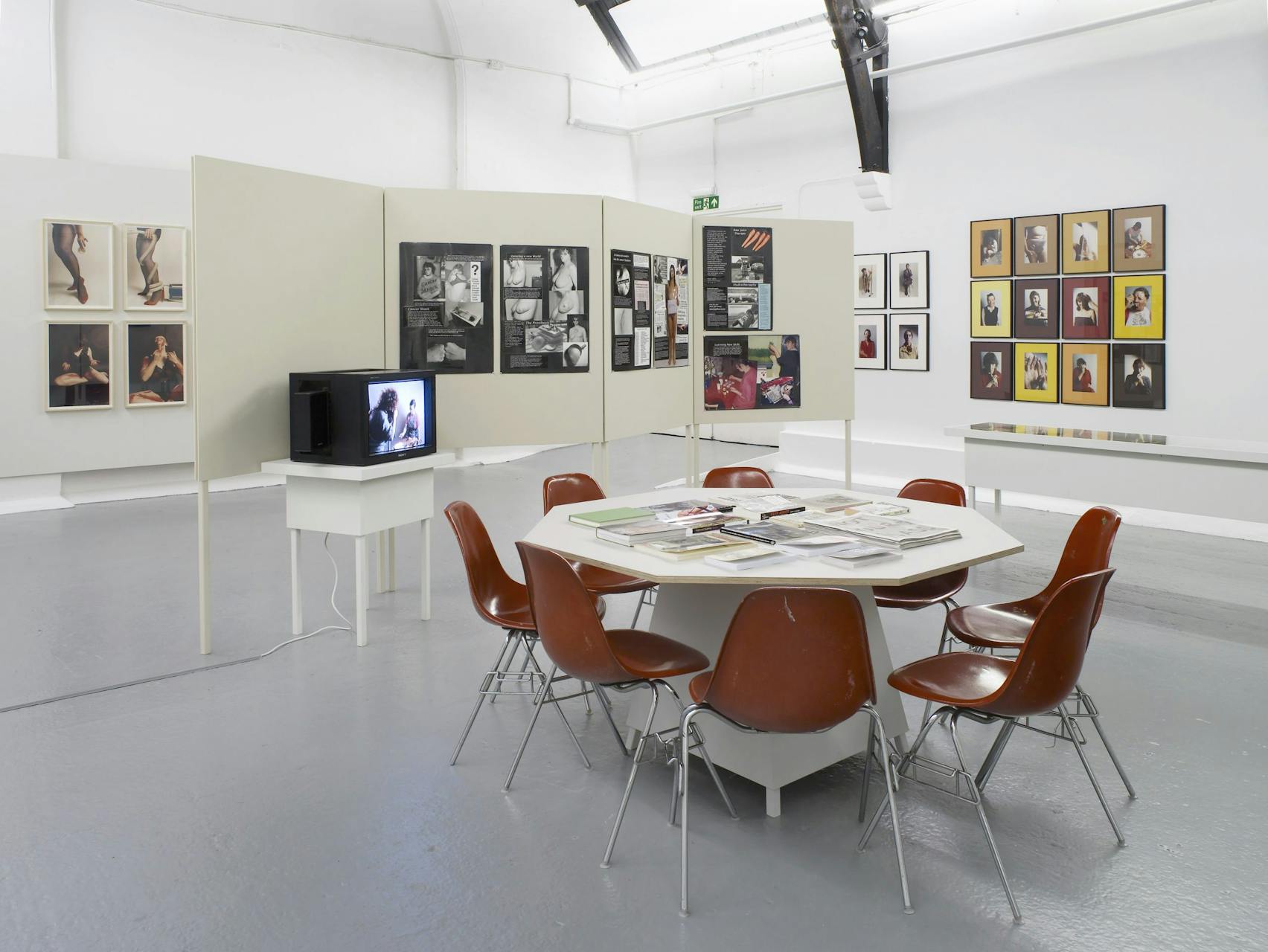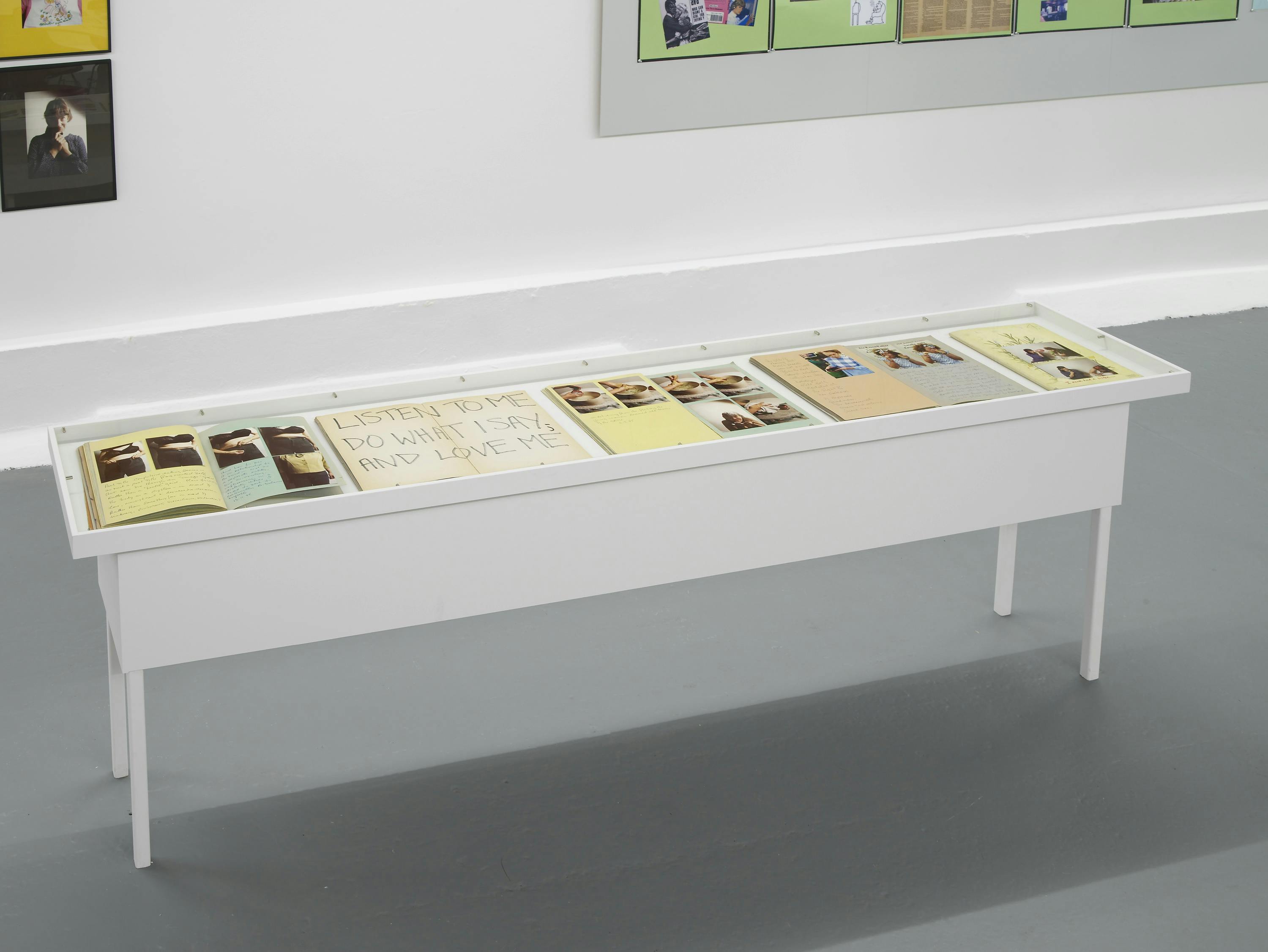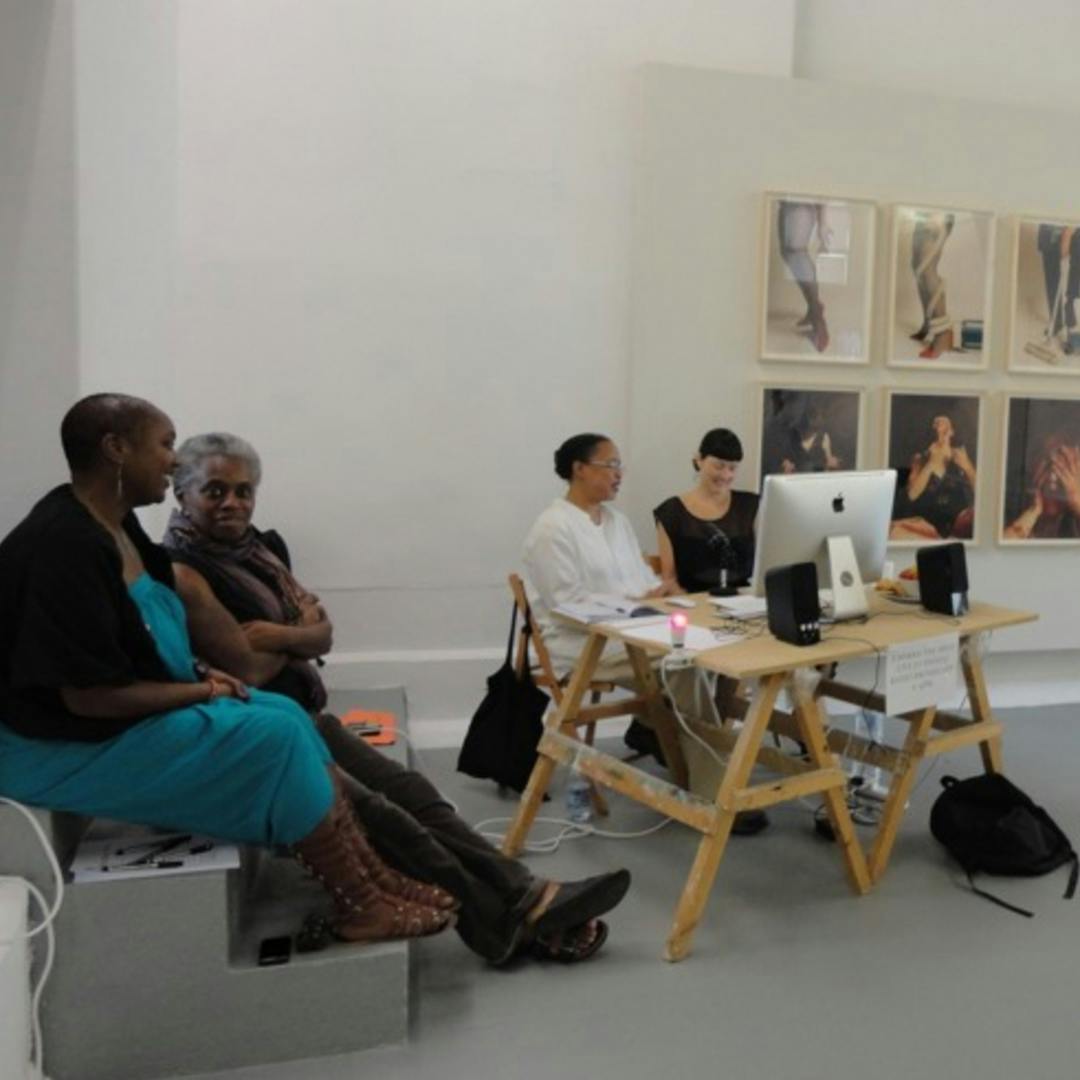Jo Spence, Work (Part II), 2012. Installation View, Studio Voltaire, London. Courtesy of the artist, The Jo Spence Memorial Archive and Studio Voltaire, London. Credit Andy Keate.
Jo Spence
Work (Part I & II)
13 June–12 August 2012
Jo Spence (b. 1934–d. 1992) emerged as a key figure in the mid-1970s from the British photographic left, crucial in debates on photography and the critique of representation. Her work engaged with a range of photographic genres, from documentary to phototherapy, and responded to the prioritisation from the late 1970s onwards of lens-based media in art-critical discourse.
Rough-edged, recycled, personal – in essence positively amateur, Spence’s work stands in direct opposition to numerous artistic givens. She proposed process over object, collaboration and collectivity over heroic authorship and, above all, generosity (to self and others) over the pursuit of any singular creative ambition. While adroit with its arguments, she swerved the academic theorisation of photography, preferring an experimental and biographical exploration of ideas. This resulted in a richly didactic yet highly idiosyncratic output, one that is playful and even silly at times, while also being capable of delivering images of excoriating intensity.
Spence held the firm belief that photography has an empowering capacity when applied to complex issues of class, power, gender, health and the body. From this perspective, she rallied against all forms of hegemony, dominance and control. Her critical concerns, be they with the idea of naturalism in the documentary image or protocols within the National Health Service, became the primary productive principal for her output, drawing her into action – variably as an artist, writer, activist, community leader, adult educator and patient.
While a prevailing wind of cultural pessimism might propose Spence’s work as specifically periodic, to those who know it, and to those who – through this exhibition – came to know it, it is clear that she has much to offer contemporary audiences. Her work is best described as energetic, one that is constantly agitating, asking awkward questions, and pushing against things. It is no wonder that Spence was never quite at ease with the title ‘artist’. Instead, she had a preference – one linked both to the behavioural condition of the photographer, but also to the nature of her critical enterprise, that of 'cultural sniper'.
On the twentieth anniversary of her death, Work (Part I & Part II) offered an important opportunity to experience a significant presentation of the photographer’s practice first-hand. In doing so, we hope the exhibition allows for a recognition of the relevance of her work and working methods, both of which remain as sharply radical and transformative today as they were over two decades ago.
The exhibition was chronologically split across the two sites:
[space]’s presentation focused on Spence’s work from the late 1960s to the early 1980s and explored the explicitly social and political dimensions of her early solo and collaborative work. Studio Voltaire presented later works from the early 1980s up to the artist’s death in 1992. The latter works broadly deal with issues of health, therapy, self-empowerment and mortality.
In recent years, Spence’s practice has received attention with retrospectives of Spence’s work at MACBA, Barcelona (2005) and Camera Austria, Graz (2006), and her inclusion in Documenta 12 (2007). Her work is represented in international public collections including MACBA, Barcelona; GOMA, Glasgow; Ryerson Image Centre, Canada; Museo Nacional Centro de Arte Reina Sofia, Madrid and Victoria and Albert Museum, London.
As an integral part of the project, Studio Voltaire has launched Not Our Class. This new long-term programme of education and participatory projects takes the work of Jo Spence as a starting point for investigating the legacy and potentials of her work in relation to contemporary culture and life. Through a series of commissions, offsite projects, workshops, public events, and reading groups situated both within Studio Voltaire’s neighbourhood and contemporary art discourse the programme will explore the new turn towards education and participation within contemporary art practice. The programme will include new commissions by artists Marysia Lewandowska working with The Jo Spence Memorial Archive, and Rehana Zaman working with King’s College Hospital and Body & Soul. Additionally, Mystique Holloway, Ego Ahaiwe, Louise Shelley, Gina Nembhard, Emma Hedditch, Lauren Craig and Zoe Holloway have set up the research group X Marks The Spot based at Lambeth Women’s Project.
To accompany Work (Part I & II) a publication was produced, with design by modern activity, and material courtesy of Terry Dennett and the Jo Spence Memorial Archive. Read the publication here.

